How to stay on track in the face of increasing demand and unpredictable obstacles
This year’s in-person conference explores how we can sustain a durable energy transition and stay on track in the face of increasing demand and unpredicted obstacles. We will look at the implications of geopolitical shifts, such as elections and wars, and their impact on policy and supply; advances in and challenges to decarbonization, including energy storage, hydrogen, social barriers, and higher demands for energy from data centers; and perspectives on the future of the energy industry. We will gain insight onto the progress of the Inflation Reduction Act and hear from MIT-connected startup companies on their work. We will review promising discoveries from MITEI’s Seed Fund program, which supports early-stage research, and hear from MITEI members and MIT faculty and leaders.
Marriott Boston Cambridge | 50 Broadway, Cambridge, MA 02142
Questions? Contact MITEI Member Services.
AGENDA
| Wednesday, September 25 | |
| 7:30-8:30 am In person only |
Breakfast and registration |
| 8:30-8:40 am |
Opening remarks |
| 8:40-9:00 am | Remarks William H. Green, Director, MIT Energy Initiative; Hoyt C. Hottel Professor, MIT Department of Chemical Engineering |
| 9:00-10:15 am | Energy storage and grid expansion Global demand for electricity is rising at its fastest rate in years, with great expectations for the grid to handle more renewable power. Energy storage is a key enabling technology for grids to handle greater degrees of renewable penetration, all while ensuring reliability and reasonable cost at the same time. What can be learned from energy storage implementation projects to date? And what MIT materials and systems research can help solve the grid’s energy storage needs? Anuradha Annaswamy, Senior Research Scientist and Founder and Director, Active-Adaptive Control Laboratory, MIT Department of Mechanical Engineering Moderated by:: John Parsons, Deputy Director for Research, MIT Center for Energy and Environmental Policy Research |
| 10:15-10:45 am | Break |
| 10:45 am-12:00 pm |
Social barriers to decarbonization Stephen Ansolabehere, Frank G. Thompson Professor of Government, Moderated by: Janelle Knox-Hayes, Professor of Economic Geography and Planning, MIT Department of Urban Studies and Planning |
| 12:00-1:30 pm In person only |
Lunch and student poster viewing |
| 1:30-2:45 pm | MITEI General Seed Fund Project annual check-up The MITEI Seed Fund Program supports innovative, early-stage research across the energy spectrum. To date, the program has supported more than 220 energy-focused projects with grants totaling more than $28.8 million. This session features projects from recent awardees. Sili Deng, Associate Professor, MIT Department of Mechanical Engineering Ruaridh Macdonald, Research Scientist, MIT Energy Initiative Afreen Siddiqi, Research Scientist, MIT Department of Aeronautics and Astronautics Kyung-Shik Kim, Postdoctoral Associate, MIT Department of Materials Science and Engineering Moderated by: Martha Broad, Executive Director, MIT Energy Initiative |
| 2:45-3:15 pm | Break |
| 3:15-4:30 pm | The extreme challenge of powering data centers in a decarbonized way Expectations are that data centers will consume 4% of global electricity and produce more than 1% of emissions by 2030. This is a multi-dimensional problem, requiring research and investment in non-fossil power generation, grid expansion, building design, computation, and regulatory policy. This panel will discuss the challenges faced by hyper scalers and industrial equipment providers–and MIT’s role in accelerating solutions. Reference data center acronyms. Pedro Gómez, Strategy and Business Development Director, Ferrovial Digital Infrastructure Moderated by: Randall Field, Director of Research, MIT Energy Initiative |
| 4:30-5:30 pm | Startup showcase This session will look at energy startups, seeing how the best companies are navigating the challenge of taking their technology from the lab to the market. We will feature companies at various stages of development and discuss the value of partners throughout each part of the process. Introduction by: J.J. Laukaitis, Director of Member Services, MIT Energy Initiative Daniel Cavero, Co-founder and Head of Advanced Technology, Noya |
| 5:30-7:00 pm In person only |
Reception with startup companies |
| Thursday, September 26 | |
| 7:30-8:15 am | Breakfast and registration In person only |
| 8:15-9:45 am |
Enabling the hydrogen ecosystem Moderated by: William H. Green, Director, MIT Energy Initiative; Hoyt C. Hottel Professor, MIT Department of Chemical Engineering Panel presentation: Moderated by: Yogesh Surendranath, Donner Professor of Science, MIT Departments of Chemistry and Chemical Engineering |
| 9:45-10:00 am | Break |
| 10:00-11:15 am | Getting to work: Building the talent pipeline to support energy transition success Well-trained human capital will be key to our ability to decarbonize our energy system rapidly. What are the workforce strategies and programs we should plan now to create the workforce required in 2040 and 2050? Our panelists bring different perspectives on the best ways to ensure the equitable and effective development of the workers we will need. Jennifer Applebaum, Managing Director of Workforce Development, Massachusetts Clean Energy Center Moderated by: Elisabeth B. Reynolds, Professor of the Practice, MIT Department of Urban Studies and Planning |
| 11:15 am-12:00 pm | Student slam competition Students who participated in this summer’s Undergraduate Research Opportunities Program (UROP) will present their research in a slam competition. Each will present a pitch emphasizing: the problem statement for the UROP project, its research contributions, and the potential real-world impact of that research. Members will vote for their top three presenters based on their energy and presentation, not on the research content of their presentation.
Moderated by: Aisling O’Grady, Education Program Administrator, MIT Energy Initiative |
| 12:00-1:30 pm | Lunch and student poster viewing |
| 1:30-2:30 pm MITEI Annual Research Conference afternoon sessions on September 26 are open to the MIT community. |
Energy transition in different regions Reaching net-zero emissions by 2050 requires massive energy changes in daily life and every global region’s economy. This raises important questions of how to optimally achieve scale up of low emissions technologies, as well as equity issues of balancing mitigation with energy access and economic opportunity. Moreover, the set of optimal technologies and policies will likely vary widely from region to region. This panel will put a focus on these factors and the energy transition priorities of regions outside of the United States. Andrés González García, Co-CEO, Waya Energy; Affiliate Researcher, MIT Energy Initiative Moderated by: Namrata Kala, Associate Professor, Applied Economics, MIT Sloan School of Management |
| 2:30-3:00 pm |
Keynote address Currently, 75% of India’s power demand is being met through thermal power. However, with the global imperative to decarbonize and ensure energy security, India must transition to cleaner energy solutions. To this end, India has set ambitious targets to expand renewable energy capacity and has made significant strides. However, current clean energy solutions remain intermittent and are unable to provide round the clock clean and firm power. Emerging technologies will be critical in supporting this to provide reliable and affordable power in line with sustainable development goals. In this session, Praveer Sinha will address the challenge of balancing the need for clean power with the India’s growing energy demands, explore how affordable and reliable clean power can be ensured, what technologies are likely to play a role in this transition, and discuss how India can become a model for others in the Global South in ensuring energy security. Praveer Sinha, CEO and Managing Director, The Tata Power Company Limited Moderated by: William H. Green, Director, MIT Energy Initiative; Hoyt C. Hottel Professor, MIT Department of Chemical Engineering |
| 3:00-3:30 pm | Break |
| 3:30-4:45 pm | Young voices: How can energy companies attract tomorrow’s energy leaders Across the energy transition, not only is the energy landscape changing, but so are the outlooks of the next generation of leaders. This panel represents voices from advanced students and recent alumni of MIT who will speak about their own expectations on the topic of worthwhile careers and preferred corporate cultures. The panel topic invites a conversation between industry and potential recruits. Liam Fenlon, Commercial Associate, Eku Energy Moderated by: Rowan Elowe, Senior Academic Program Administrator, MIT Energy Initiative |
| 4:45 pm | Closing remarks William H. Green, Director, MIT Energy Initiative; Hoyt C. Hottel Professor, MIT Department of Chemical Engineering |
5:00 pm In person only |
Reception |
About the speakers
Anuradha Annaswamy
Senior Research Scientist and Founder and Director, Active-Adaptive Control Laboratory, MIT Department of Mechanical Engineering
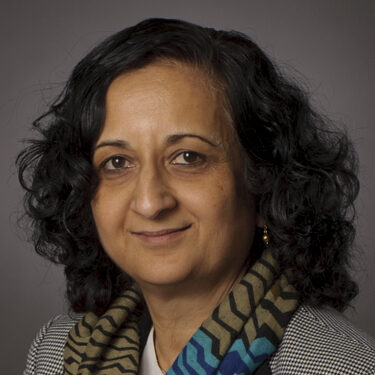
Anuradha Annaswamy is founder and director of the Active-Adaptive Control Laboratory in the Department of Mechanical Engineering at MIT. Her research interests span adaptive control theory and its applications to aerospace, automotive, propulsion, and energy systems as well as cyber physical systems such as Smart Grids and Smart Cities. She has received best paper awards (Axelby, 1986; CSM, 2010), as well as Distinguished Member and Distinguished Lecturer awards from the IEEE Control Systems Society (CSS), best paper award from the IFAC journal Annual Reviews in Control for 2021-23, and a Presidential Young Investigator award from NSF, 1991-97. She is a fellow of IEEE and International Federation of Automatic Control. She is the recipient of the Distinguished Alumni award from Indian Institute of Science.
Annaswamy has co-authored two NASEM reports, Future of Electric Power in the United States, and Role of Net-metering in the Evolving Electricity System, in the past few years, and was a co-editor of the IEEE Control Systems Society report “Control for societal-scale Challenges: Road Map 2030,” published in 2023. She is currently serving as the president-elect of the American Automatic Control Council.
Stephen Ansolabehere
Frank G. Thompson Professor of Government, Harvard University
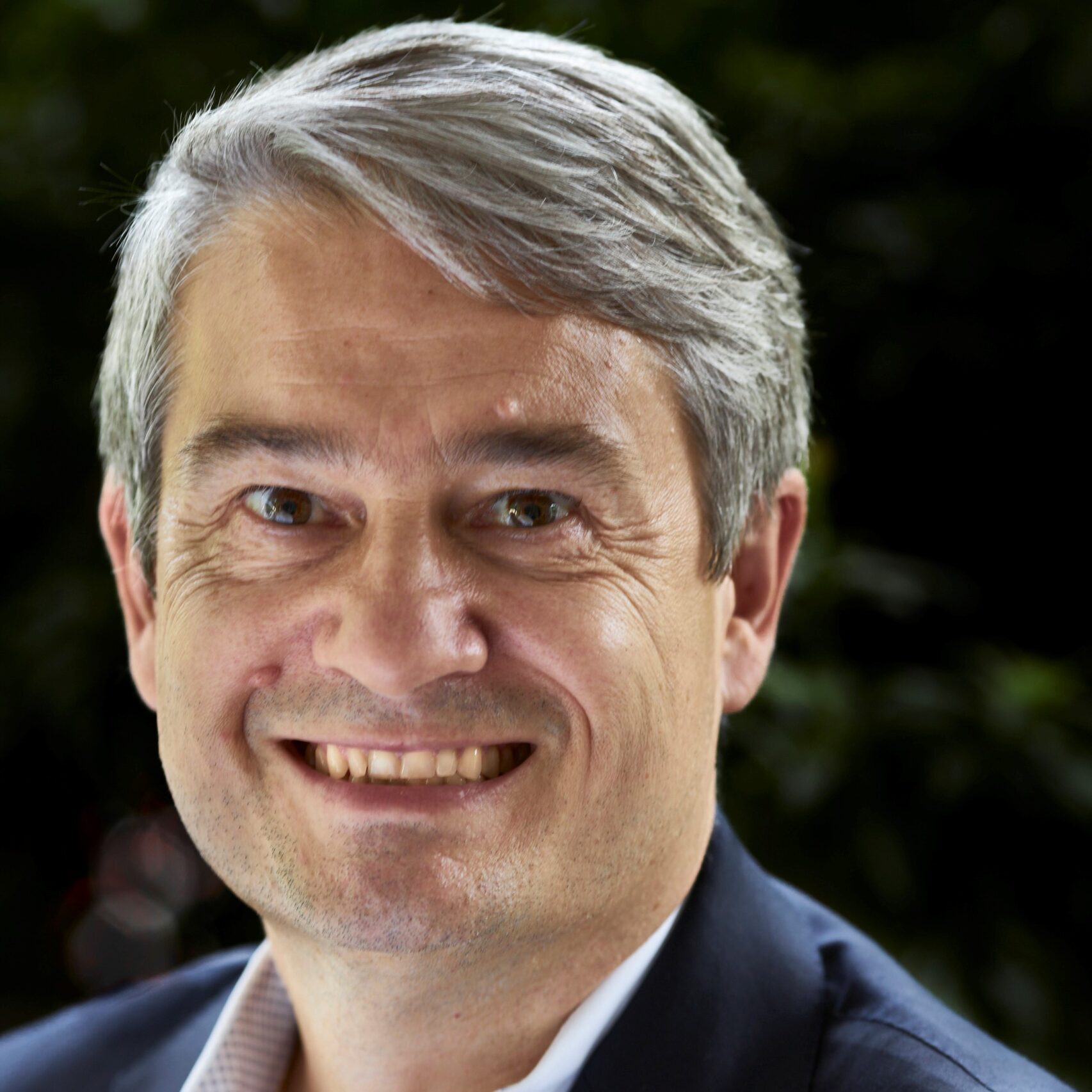
Stephen Ansolabehere is the Frank G. Thompson Professor of Government at Harvard University. Before joining the faculty at Harvard University, he taught at MIT and UCLA. He is an expert on democracy and representation in the United States, especially U. S. elections, voting behavior, public opinion, and energy and environmental politics. He is author of five books, including Cheap and Clean: How Americans Think About Energy in the Age of Global Warming (2014), and has published academic research in a wide range of fields, including political science, economics, statistics, law, and environmental policy.
He leads the Salata Institute’s Research Cluster on Strengthening Communities for Changing Energy Systems. He is principal investigator of the Cooperative Congressional Election Study and consults with CBS News on the Election Night Decision Desk, helping the network call the elections. In 2007, he was elected to the American Academy of Arts and Sciences.
Jennifer Applebaum
Managing Director of Workforce Development, Massachusetts Clean Energy Center

Jennifer Applebaum is the managing director of Workforce Development at the Massachusetts Clean Energy Center. A former teacher and entrepreneur with a broad range of curriculum, training, and program innovation experience, Applebaum oversees a portfolio of workforce programs that support clean energy career exploration, new entrant and upskilling training in climate-critical occupations, and clean energy entrepreneurship/small business development among underrepresented populations. Prior to her work at the MassCEC, Applebaum led a statewide youth employment program centered on progressive skill-building and a curriculum-based career readiness initiative that reached over 100,000 participants across multiple states. Applebaum completed her undergraduate degree at Barnard College of Columbia University and holds a master’s degree in education from City College of CUNY.
Sayandeep Biswas
PhD Candidate, Green Research Group, MIT Department of Chemical Engineering
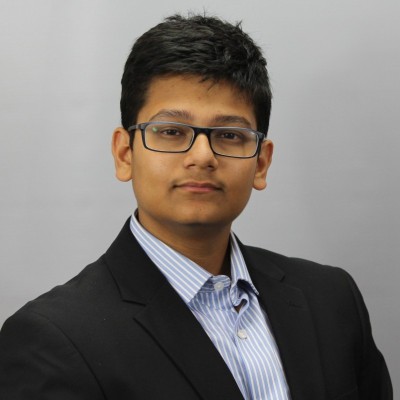
Sayandeep Biswas received an MS in chemical engineering from MIT in 2023, and a BEng in chemical engineering from the University of Minnesota, Twin Cities in 2020. He is currently a PhD candidate under the supervision of William H. Green and is focused on developing hydrogen carriers and researching their utilization to drive decarbonization efforts in the energy and transportation sectors. His work spans the development of experimental powertrain designs, simulation of energy systems, and techno-economic assessment of novel low-carbon processes.
Martha Broad
Executive Director, MIT Energy Initiative
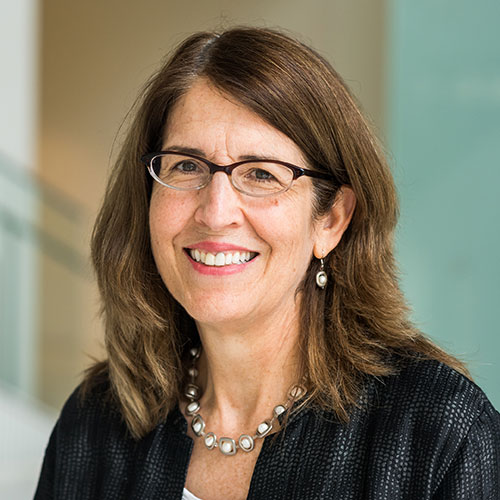
Martha Broad is MITEI’s executive director. As part of the leadership team, she works to link science, innovation and policy to transform the world’s energy systems. She has a track record of successfully partnering with business, government and nonprofit stakeholders to support the clean energy transition. At MITEI, she works closely with member companies who collaborate with MIT researchers on a spectrum of topics, including the Future Energy Systems Center.
In addition, she spearheads MITEI’s collaboration with the U.S. Department of Energy to design, manage, and host the annual Clean Energy Education and Empowerment (C3E) Women in Clean Energy Symposium and serves as a C3E Ambassador.
Previously, as part of the senior management team of the Massachusetts Clean Energy Center (MassCEC), Broad led programs and studies that focused on the commercialization of clean energy technologies. By collaborating with universities and public and private partners, she helped facilitate the state’s successful installation of hundreds of megawatts of wind and solar systems.
Scott Burger
Director, Business Development and Analytics, Form Energy

Scott Burger is the director of Business Development and Analytics at Form Energy, where he is responsible for all North American commercial activities as well as the modeling and data science that powers Form’s commercial, strategy, battery product management, and policy and regulatory affairs activities. Prior to joining Form Energy, Burger was a Fellow on the World Economic Forum’s (WEF) Global Future Council on Energy and a lecturer and research associate at the Massachusetts Institute of Technology. Burger’s research at MIT focused on the economics of decarbonized and decentralized electricity systems. While at MIT, Burger held various roles commercializing early-stage climate technologies. Burger helped investors, such as Breakthrough Energy Ventures and Prime Coalition, better target investments that have the potential to reduce greenhouse gas emissions. Burger served as the director of Operations for Prime Coalition, where he led PRIME’s technology diligence and investment operations. Prior to PRIME, Burger served as the managing director of the MIT Clean Energy Prize (CEP), the director of Engineering for Circular Energy, and an analyst with GTM Research. Burger holds a BS with distinction in chemical engineering from Washington University in St. Louis, and an MS and PhD in engineering systems from the Massachusetts Institute of Technology, where he was awarded the MIT Energy Initiative Fellowship.
Daniel Cavero
Co-founder and Head of Advanced Technology, Noya
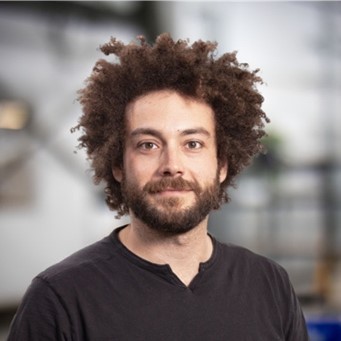
Daniel Cavero holds a master’s degree in mechanical engineering and has a diverse background in robotics, optics, and motion controls, particularly in drone automation. Inspired by a thermodynamics professor in college, Cavero dedicated his life to solving climate change. In 2020, he co-founded Noya alongside Josh Santos, where he led the technical development and played a key role in expanding the engineering team. Noya, now a Series A startup with a strong technical focus, is dedicated to capturing CO2 from the atmosphere using a fully electric process that also captures water, with the goal of reversing climate change. Cavero currently serves as the head of Advanced Technology, focusing on pioneering innovations in Direct Air Capture (DAC) for the next 5-10 years.
Mukesh Chatter
CEO, Alsym Energy
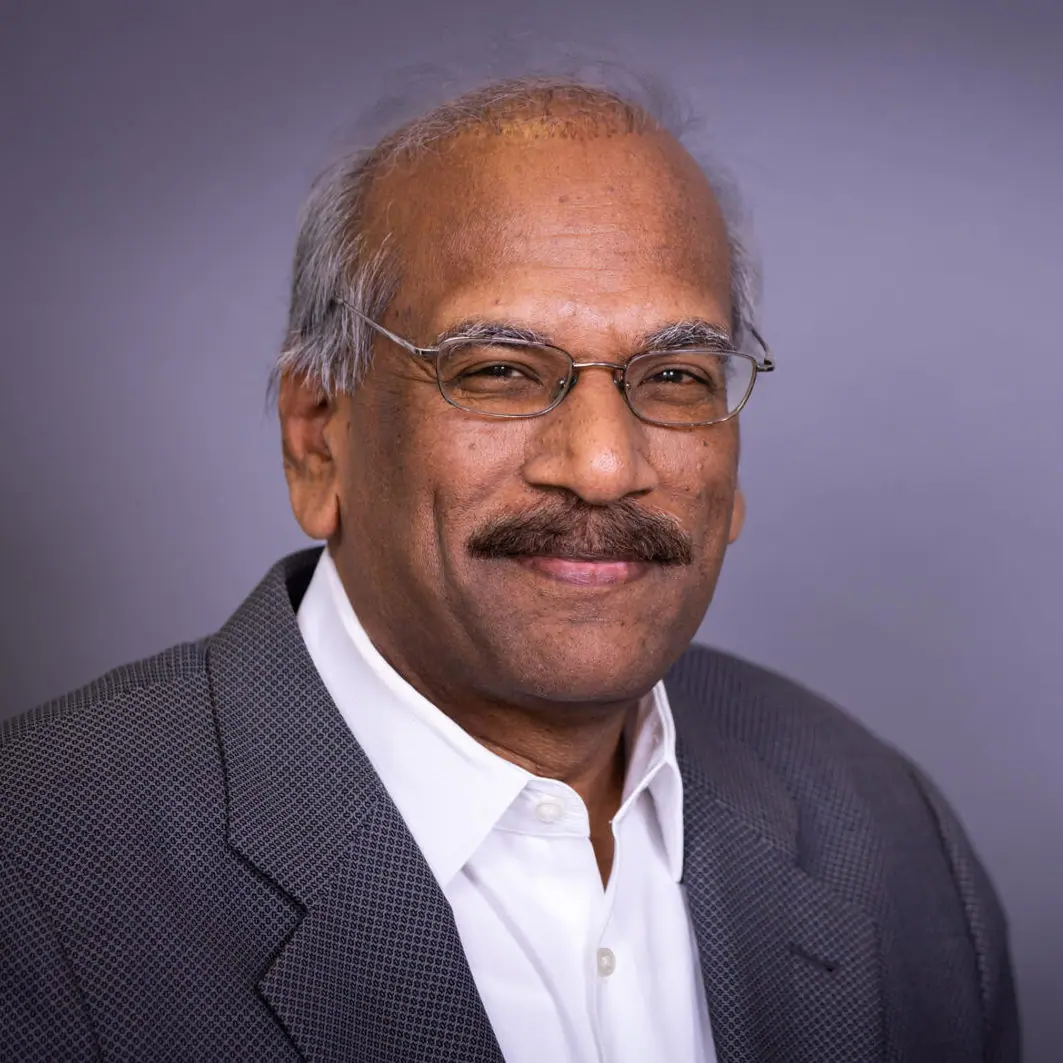
Mukesh Chatter is the president, CEO and co-founder of Alsym Energy, a battery technology company developing high-performance, low-cost batteries to enable a zero-carbon electrified future for all. He is a successful serial entrepreneur with a track record of developing advanced technology products and leading startups from launch to success. Chatter co-founded Nexabit Networks, a terabit switch/router company, and led the company as CEO until its acquisition by Lucent Technologies. After the acquisition, Chatter served as the vice president and general manager of IP Products at Lucent. Chatter also co-managed NeoNet Capital LLC, an investment firm focused on funding out-of-the-box, innovative ideas.
Chatter was named one of the Top 10 Entrepreneurs of the Year by Red Herring Magazine in 1999, and was named Rensselaer Entrepreneur of the Year in 2001. He holds over 23 patents spanning a broad range of technical domains and has several more patent applications pending.
Chatter and his wife are deeply passionate about developing affordable solutions to global problems and they have endowed two chaired professorships at Rensselaer Polytechnic Institute to support clean water and carbon capture technology.
Chatter received his Master’s degree in computer and systems engineering from Rensselaer Polytechnic Institute in Troy, New York.
Antje Danielson
Director of Education, MIT Energy Initiative
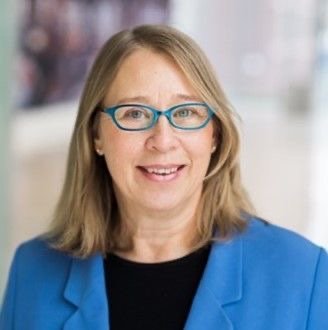
Antje Danielson is the director of Education at the MIT Energy Initiative, where she directs existing energy programs—such as the MIT Energy Studies Minor and the Energy Fellows Program—conceives and oversees the development of new programs—such as the Future of Energy Systems online MicroMasters—and engages in interdisciplinary research related to transformation systems. She co-teaches energy- and climate-related classes, and leverages her extensive international network of like-minded academic and professional colleagues to accelerate climate change related capacity building.
Prior to her position at MIT, she directed the Institute of the Environment at Tufts University, where she was also an assistant professor in the Department of Public Health. From 2005 to 2008, she was the deputy director for sustainability at the Centre for Research into Earth Energy Systems at Durham University in the UK, where she initiated a carbon capture and storage working group.
Danielson’s approach to finding climate solutions is systemic, interdisciplinary, collaborative, and entrepreneurial. She advances her goals through research, education, and implementation of solutions. In 1999/2000, she co-founded the car-sharing company Zipcar.
Danielson is a member of the Board of Directors of the Global Council for Science and the Environment and has also served as president of the U.S. Council for Environmental Deans and Directors. She received teaching awards from Harvard University and an Exceptional Contribution Award from Durham University.
Nora DeDontney
Director of Development, Vineyard Offshore
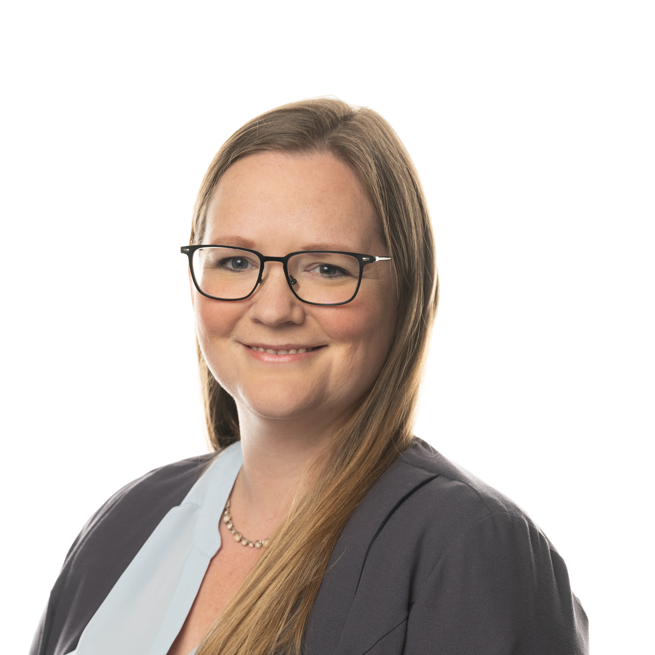
Nora DeDontney serves as a director of development at Vineyard Offshore, and offshore wind developer. She oversees the early-stage activities of the Vineyard Mid-Atlantic lease area in the New York Bight. Development activities include technical development, permitting, project management, procurement, tribal and fisheries engagement, and environmental activities. DeDontney has 13 years of experience in the energy industry with experience spanning R&D, business development and early project development. Prior to joining Vineyard Offshore, she worked on a Carbon Capture and Sequestration project in the Gulf Coast targeting 10 MTA abatement of CO2 emissions and a project to transition the power sector in Guyana to a cleaner and more reliable power source. In addition to early project development, she also worked in business development, acquiring acreage for development and supporting the portfolio evaluation for early investment decisions. She also spent time in R&D focusing on subsurface rock deformation and developing tools to better understand seismicity induced by man-made actions. DeDontney received a BS in geology and mechanical engineering from Caltech and a PhD in earth science from Harvard. She currently lives in Boston, Massachusetts with her husband and three children.
Agustín Delgado Martín
Chief Innovation and Sustainability Officer, Iberdrola
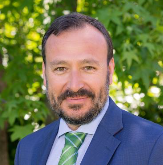
Agustín Delgado Martín holds an MSC in industrial engineering from the Escuela Superior Industrial (ICAI) of Universidad Pontificia Comillas in Madrid and a PhD in industrial engineering. He has also completed the School of Management Program by IESE and the Global Leadership Program at IMD.
He began his professional career in engineering companies in the railway and energy sectors and later joined Iberdrola in 2006, as director of Innovation. In 2010, he was appointed director of Innovation and Sustainability of the Iberdrola Group, a position he continues to hold.
In addition, he is responsible for Iberdrola’s venture capital program (PERSEO), and supervises the activities of Iberdrola Innovation Middle East based in Qatar. He is also responsible for the relationship and collaboration programs between Iberdrola and prestigious universities worldwide. He leads the design of Iberdrola’s strategic framework in the field of innovative projects and alliances regarding climate action.
Currently, he is member of the board of directors of Avangrid, president of Carbon2Nature, and a member of the board of directors of Charging Together, all of them companies of the Iberdrola Group.
He is president of the Extremadura Business Corporation (CEX); member of the Global Future Council for Advanced Energy Technologies of the World Economic Forum; member of the advisory board of NEOTEC (Spanish Venture Capital Investment Program); member of the Future Energy Systems Center at MIT (Massachusetts Institute of Technology); and member of the Energy Transitions Commission.
Sili Deng
Associate Professor, MIT Department of Mechanical Engineering

Sili Deng is an associate professor in the MIT Department of Mechanical Engineering. She received her bachelor’s degree in thermal engineering from Tsinghua University in 2010 and her master’s and doctoral degrees in mechanical and aerospace engineering from Princeton University in 2012 and 2016, respectively. From 2016 to 2018, Deng was a postdoctoral scholar in the Department of Mechanical Engineering at Stanford University. Deng received the Princeton Energy and Climate Scholarship in 2013 and the Gordon Wu Prize for Excellence in 2014, both from Princeton University. She also received the Excellence in Teaching Award in 2014 from Princeton University and was one of the five recipients of the Bernard Lewis Fellowship at the biennial International Symposium on Combustion in 2016. She was appointed to the d’Arbeloff Career Development Chair in 2019 and the Class of 1954 Career Development Chair in 2022. She was also a recipient of the Frontiers of Engineering from National Academy of Engineering (2021), NSF CAREER Award (2022), Kavli Exploration Award (2023), Scialog Fellow by Research Corporation for Science Advancement (2024), and Irvin Glassman Young Investigator Award by Eastern States Section of Combustion Institute (2024).
Jennie Eastcott
MEA Core Team Leader, Accelera by Cummins
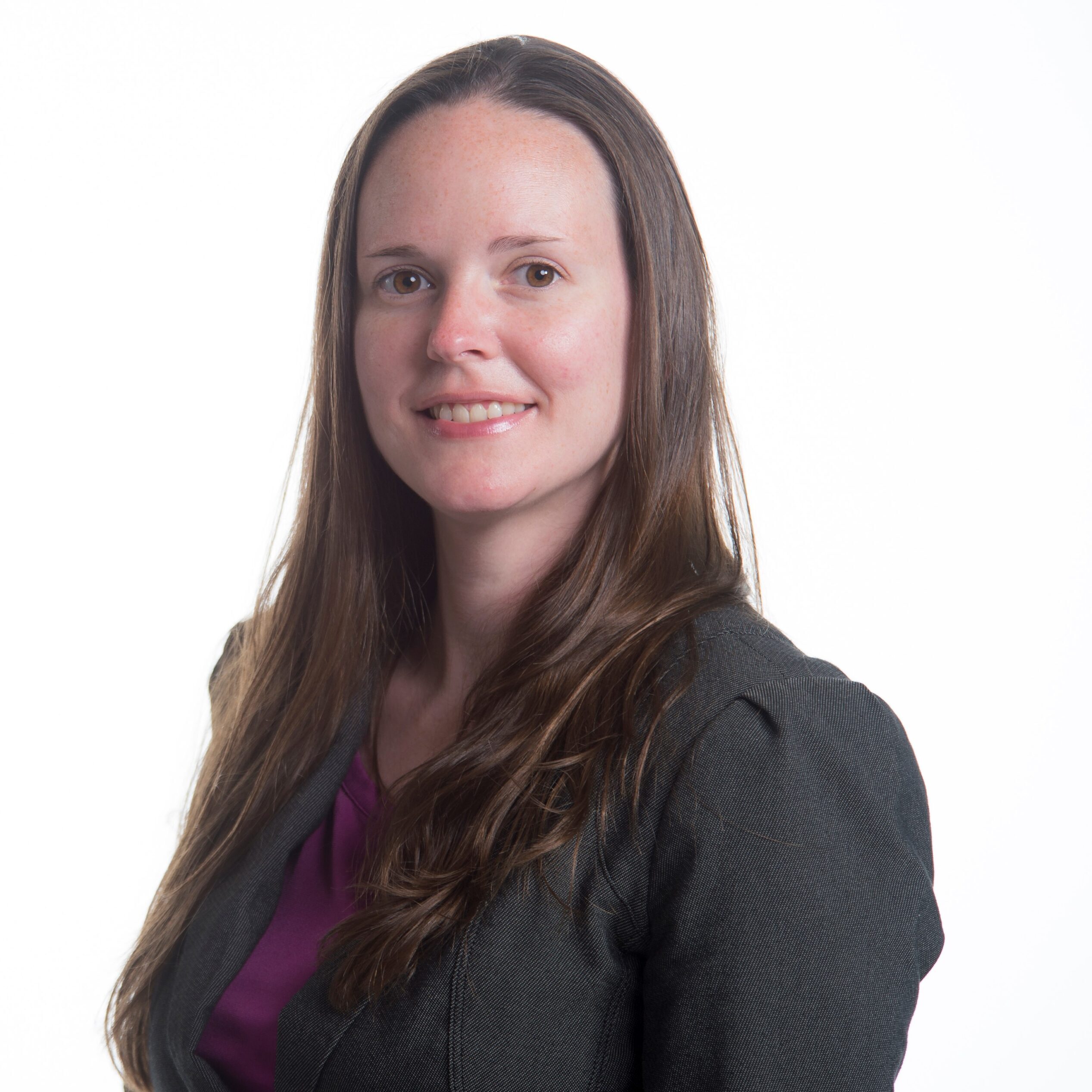
Jennie Eastcott is currently the MEA core team leader in the Hydrogen Components Technology team at Accelera by Cummins in Mississauga, Canada. She has over 15 years of experience in materials research and technology development related to electrocatalysis, catalyst layers, and CCMs/MEAs for PEM fuel cells and electrolyzers with a focus on process scale up and pilot production. Prior to joining Accelera, Eastcott worked on catalyst research and CCM process development at Automotive Fuel Cell Cooperation (AFCC). She holds three degrees (PhD, BSc, BEd) from Ontario Tech University in Oshawa, Canada.
Rowan Elowe
Chief Scientist for Energy Storage and Integration, Shell
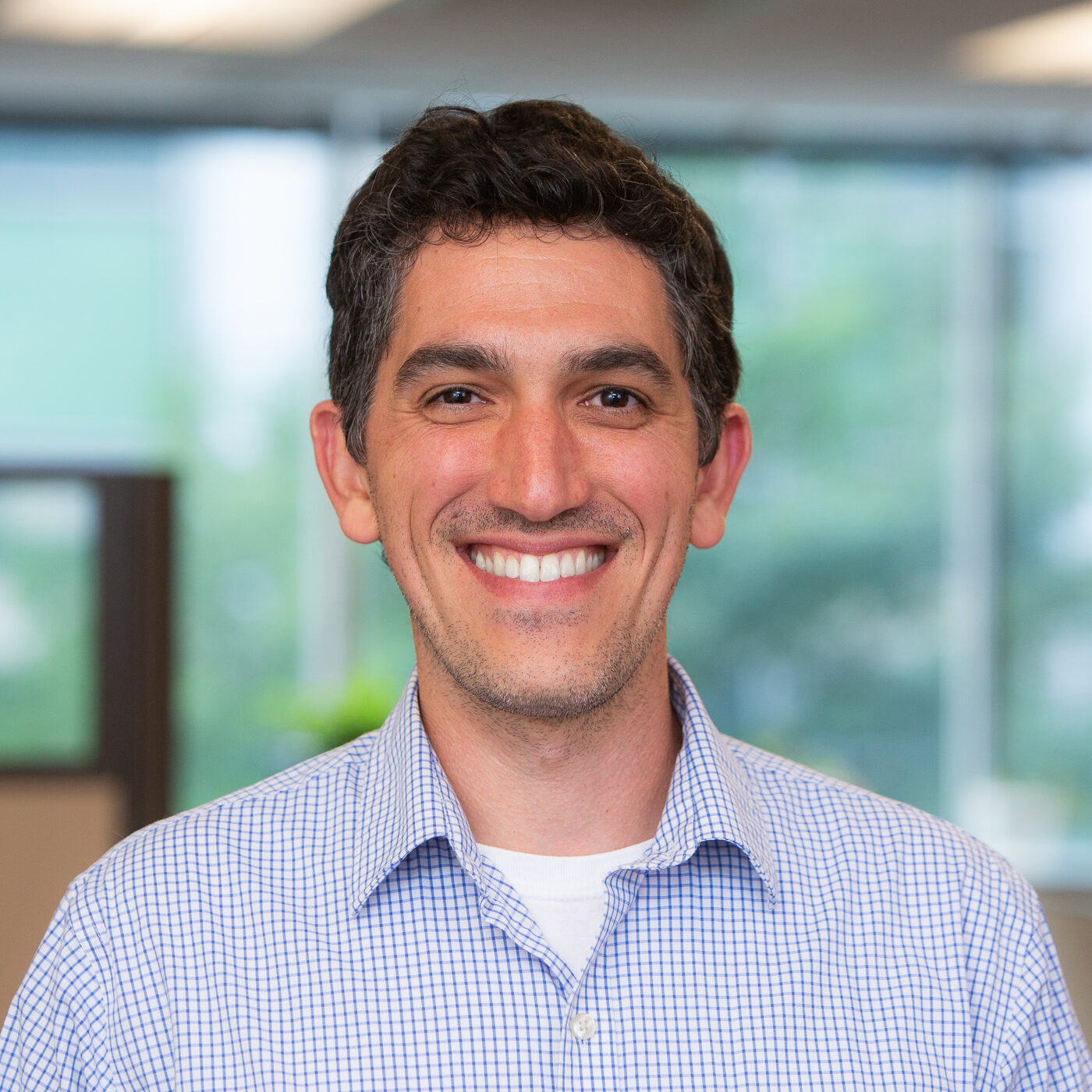
As part of the MIT Energy Initiative’s Education team, Rowan Elowe works with MIT faculty, researchers, and students to create interdisciplinary energy and climate education opportunities for MIT students (Energy Studies Minor) and global learners (MITEI’s online energy courses). Prior to MIT, Elowe worked with the Huron River Watershed Council to promote clean water policies and citizen science events, and with the Washtenaw Natural Area Preservation Program (NAPP) to support biodiversity management on conservation land. Elowe holds a Master of environmental law and policy from Vermont Law School, and a degree in philosophy from Wheaton College (MA), and also served in the Americorps City Year program.
Elizabeth Endler
Chief Scientist for Energy Storage and Integration, Shell
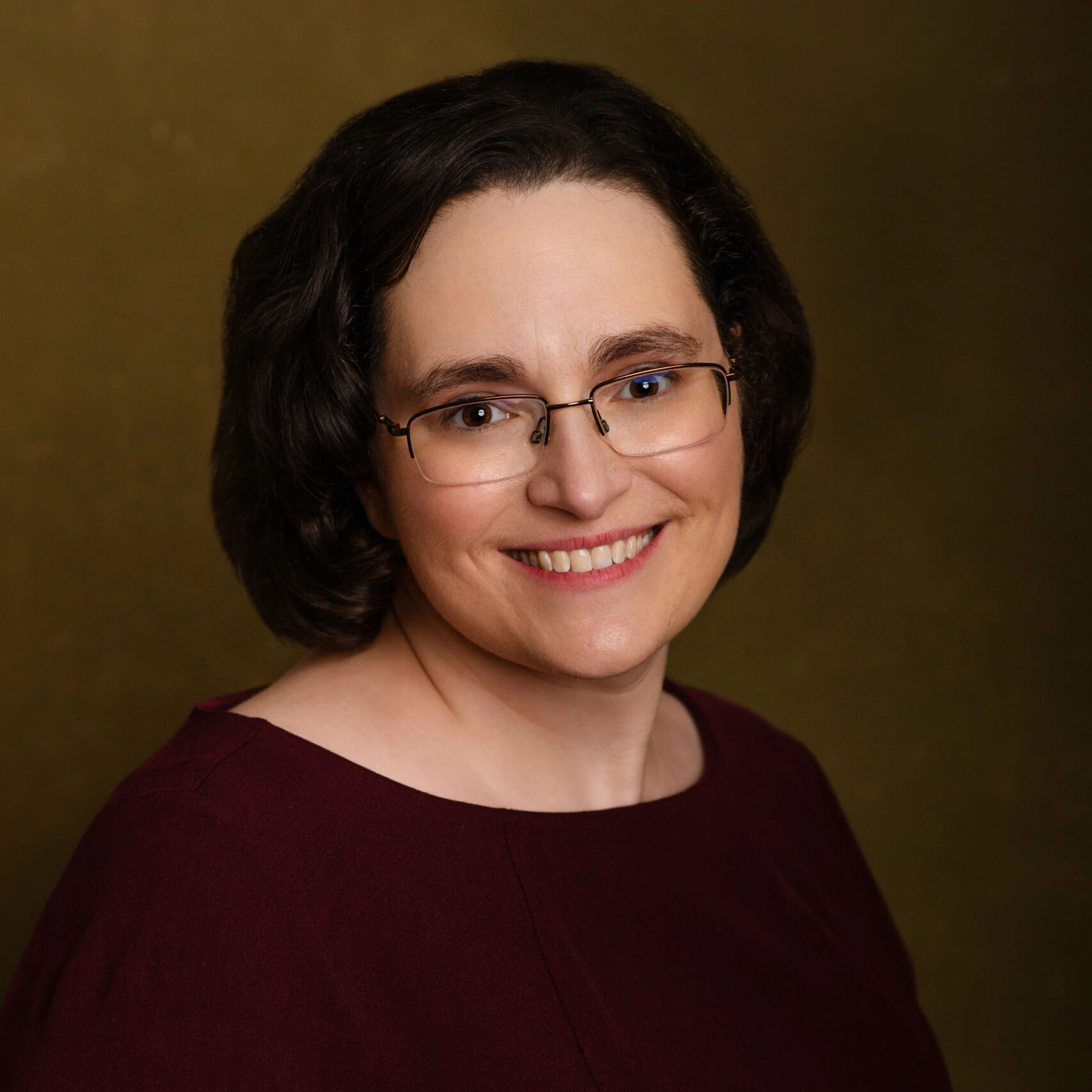
Elizabeth Endler currently serves as chief scientist for energy storage and integration at Shell. In this role, she provides strategic leadership in the development of technologies and business opportunities for the energy transition, especially in the areas of electrification, system integration and energy storage.
Liam Fenlon
Commercial Associate, Eku Energy
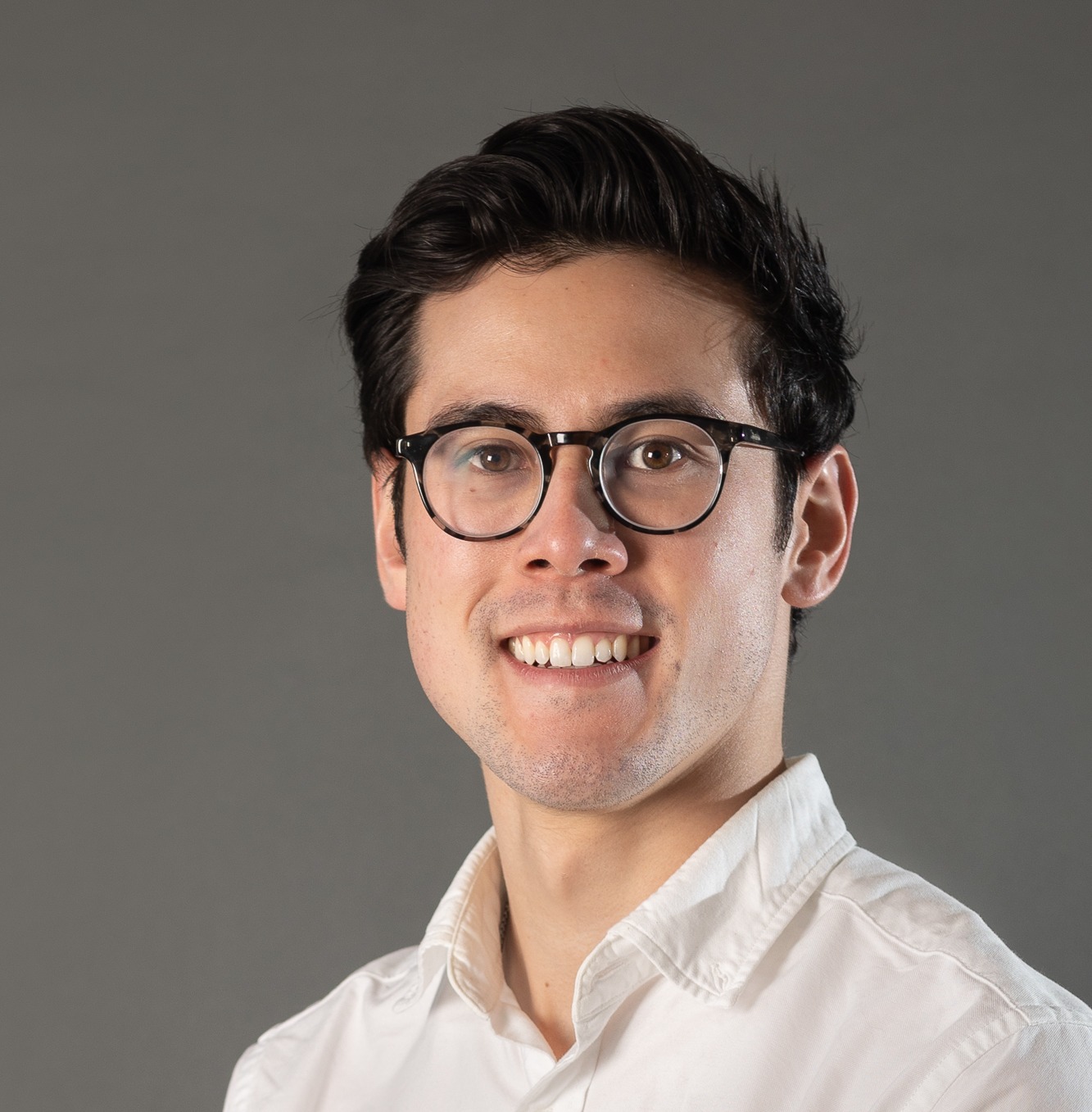
Based in London, Liam Fenlon is a commercial associate at Eku Energy, a grid-scale battery energy storage system (BESS) developer, owner, and operator. Backed by Macquarie Asset Management and British Columbia Investments, Eku was originally launched as Macquarie’s dedicated grid-scale battery storage platform and now has >1GWh of capacity already deployed or in pre-construction globally across the UK, Australia, Japan, and Italy.
Fenlon was a first hire at Eku with diverse responsibilities across market analytics, project financings and investment closings, and business planning and valuation. Fenlon’s core responsibilities now include the origination and formation of contracted and uncontracted revenue structures to bring battery storage projects to market, as well originating and transaction structuring of new market entry opportunities globally.
Prior to Eku, Fenlon was an investment banking analyst at the Macquarie Green Investment Group, where he worked on investments across a wide variety of green asset classes including EV charging, distributed generation, and behind-the-meter storage. Fenlon is a graduate of the MIT Class of 2020 with a degree in business analytics and served as a co-president of the MIT Energy Club. Fenlon is a Green Bay Packers fan.
Randall Field
Director of Research, MIT Energy Initiative
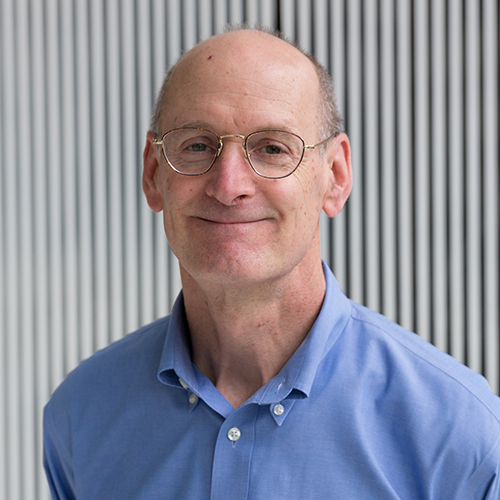
Randall Field is the director of research at the MIT Energy Initiative. He is also executive director of MIT’s Fusion Study examining the global multidecadal dynamics of the energy transition and how fusion energy can contribute to decarbonizing global energy systems. He was previously executive director for MITEI’s Mobility Systems Center, assessing the impact of transformations in vehicle and fuel technologies, service and business models, and consumer behavior in the movement of both passengers and goods. He was also executive director for MIT’s Mobility of the Future study which produced the Insights in the Future Mobility report covering global projections of alternative fuel vehicle fleets and energy consumption, deployment of charging and fueling infrastructure, attitudes towards mobility, and the impacts of innovative technologies and business models on urban mobility. As executive director for the Conversion Research Program at MIT for 10 years, Field worked with a multidisciplinary team of researchers to explore various conversion technologies for production of alternative fuels. Prior to MIT, Field worked for Aspen Technology for 23 years. Field received a SM in chemical engineering practice from MIT and a BS in chemical engineering from Caltech.
Jocelyn Foulke
Director of Product and Business Development, Found Energy
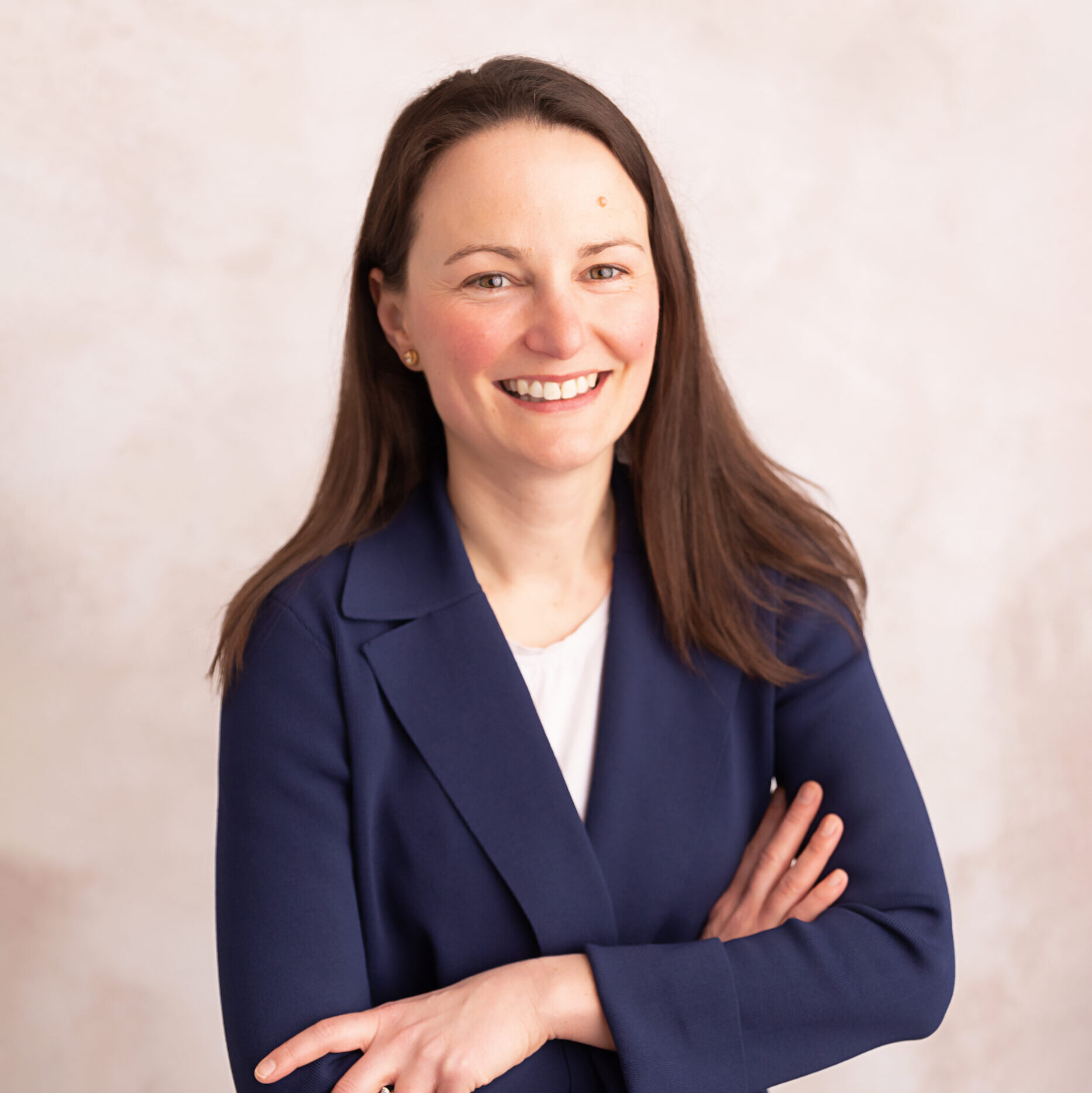
Jocelyn Foulke is a seasoned business and strategy leader who has recently pivoted to the renewable energy sector. She is a graduate of the MIT Sloan Fellow MBA program for mid-career, global business leaders, where she focused on analytics, communications, and leadership. Foulke is now leading business development efforts in a Boston-based renewable energy startup company. She thrives in a multi-disciplinary environment, focusing on building client relationships and deeply understanding client needs to move sustainable solutions from the laboratory to the commercial world.
Previously, Foulke spent 17 years with the Boston-based network of public charter schools, joining during its startup phase and advancing to serve as a member of the executive team. There, she played a pivotal role in expanding the organization across Massachusetts and Rhode Island, restructuring operations, and enhancing school facilities. Her leadership extended to developing strong teams at multiple levels of the organization, improving culture, and mentoring diverse talent.
Andrés González García
Co-CEO, Waya Energy; Affiliate Researcher, MIT Energy Initiative
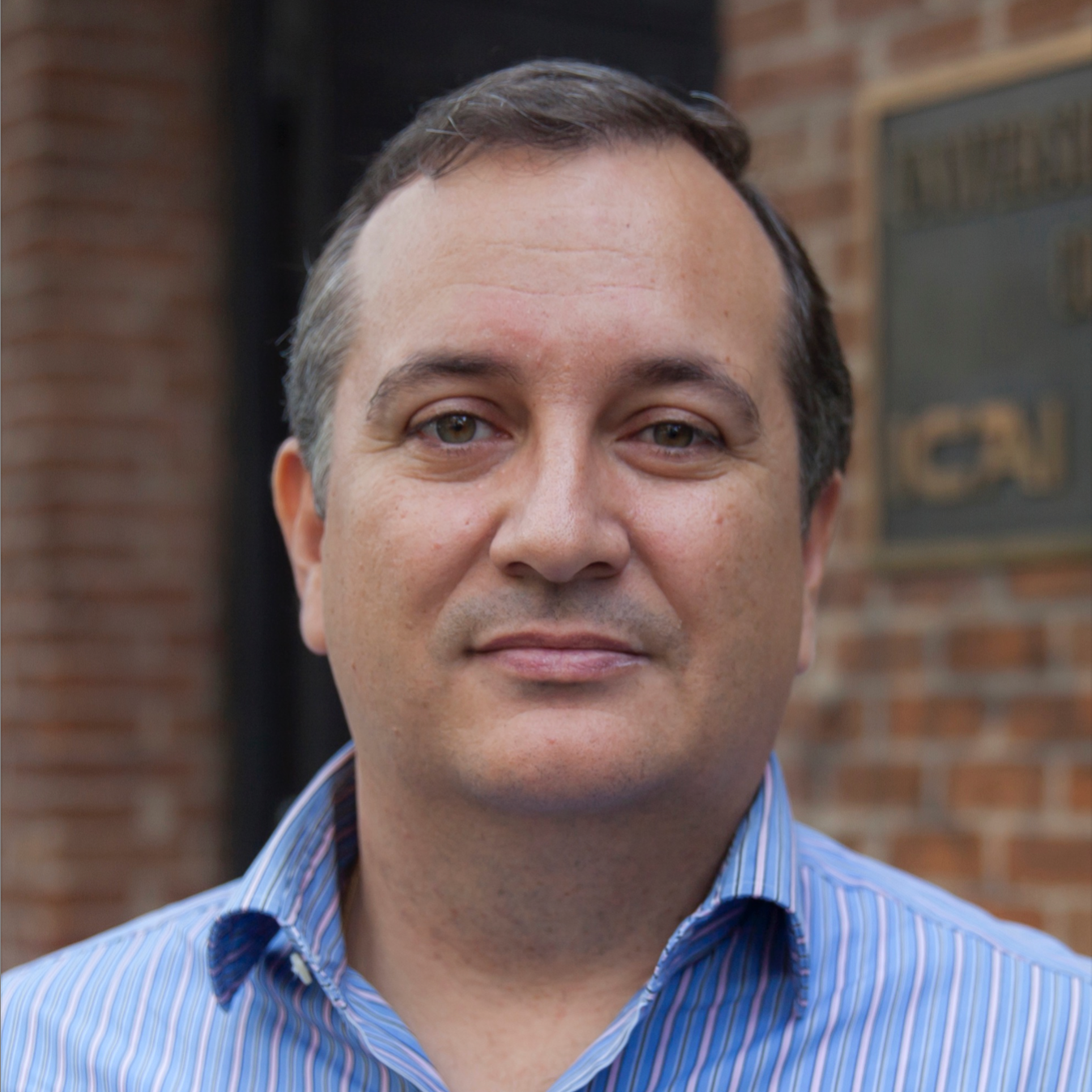
Andrés González García developed his PhD thesis at Universidad Pontificia Comillas de Madrid, Escuela Técnica Superior de Ingeniería ICAI (2024), resulting from his research at the Universal Energy Access Laboratory, and MIT Energy Initiative joint initiatives in Rwanda, India and Colombia. One of the co-founders of Waya Energy, González García is co-CEO of the spin-off company created by members of the Universal Energy Access Laboratory to exploit, among other things, the results of his doctoral thesis. Under González García’s supervision, now as principal investigator, 20 national and regional electrification plans have been developed in Africa, Asia and Latin America, with more than 220 million beneficiaries and $32 billion in planned investments, working in competitive tenders for major multilateral agencies (World Bank, Inter-American Development Bank, Asian Development Bank, International Finance Corporation, among others), governments, and companies in 25 countries, including India, Indonesia, Pakistan, Mozambique, Rwanda, Nigeria, Brazil, Peru, Bolivia, Panama, Paraguay, and El Salvador. Since November 2012, González García has been an affiliate researcher at MIT and a member of the Universal Energy Access Laboratory created by the MIT Energy Initiative. Together with researchers from the Institute for Research in Technology at Comillas Pontifical University, González García works to find solutions to the challenges of energy access and energy transition in developing countries. With MIT, González García has participated in the development of optimization models for decision support and strategies for grid, mini-grid, and off-grid electrification in developing countries. He is co-author of the Reference Electrification Model, which represents the state of the art in geospatial least-cost electrification plan design.
Khyati Garg
Graduate Research Assistant, MIT Center for Energy and Environmental Policy Research; Master’s Student, MIT Technology and Policy Program

Khyati Garg is a second-year graduate student at MIT’s Technology and Policy Program and a graduate research assistant at the MIT Center for Energy and Environmental Policy Research. She is interested in the role policy plays in a just and clean energy transition. Her research focuses on analyzing the impact of the Inflation Reduction Act on investment levels in energy communities. She interned at Shell this past summer, working on managing CCS monitoring, measurement, and verification data and interacted with different assets to understand Shell’s role in setting regulation for data export and storage standards.
Emre Gençer
Co-founder and CEO, Sesame Sustainability

Emre Gençer is the co-founder and CEO of Sesame Sustainability, an advanced software platform offering comprehensive cost and sustainability assessments for the electric power, transportation, and industrial sectors. Sesame delivers high-resolution insights that empower decision-makers with actionable data, enhancing strategic planning and implementation.
Prior to founding Sesame Sustainability, Gençer was a principal research scientist at the MIT Energy Initiative (MITEI), where he led the Energy Systems Modeling group. His research focused on optimizing energy technologies and integrating them into net-zero greenhouse gas systems, tackling both established and emerging energy challenges.
His influential research has been published in top-tier journals such as the Proceedings of the National Academy of Sciences and Nature Scientific Reports. Gençer’s work has notably shaped major studies, including the Energy Future Initiative’s (EFI) U.S. Hydrogen Demand Action Plan and MITEI’s Mobility of the Future. His innovative concepts, including Hydricity and SUFEWS, have been featured by leading technology news platforms, highlighting his significant impact on the energy sector.
Gençer holds a PhD in chemical engineering from Purdue University and dual BSc degrees in chemical engineering and mathematics from Bogazici University in Istanbul. His entrepreneurial vision and research expertise continue to drive advancements in sustainable energy solutions.
Pedro Gómez
Strategy and Business Development Director, Ferrovial Digital Infrastructure
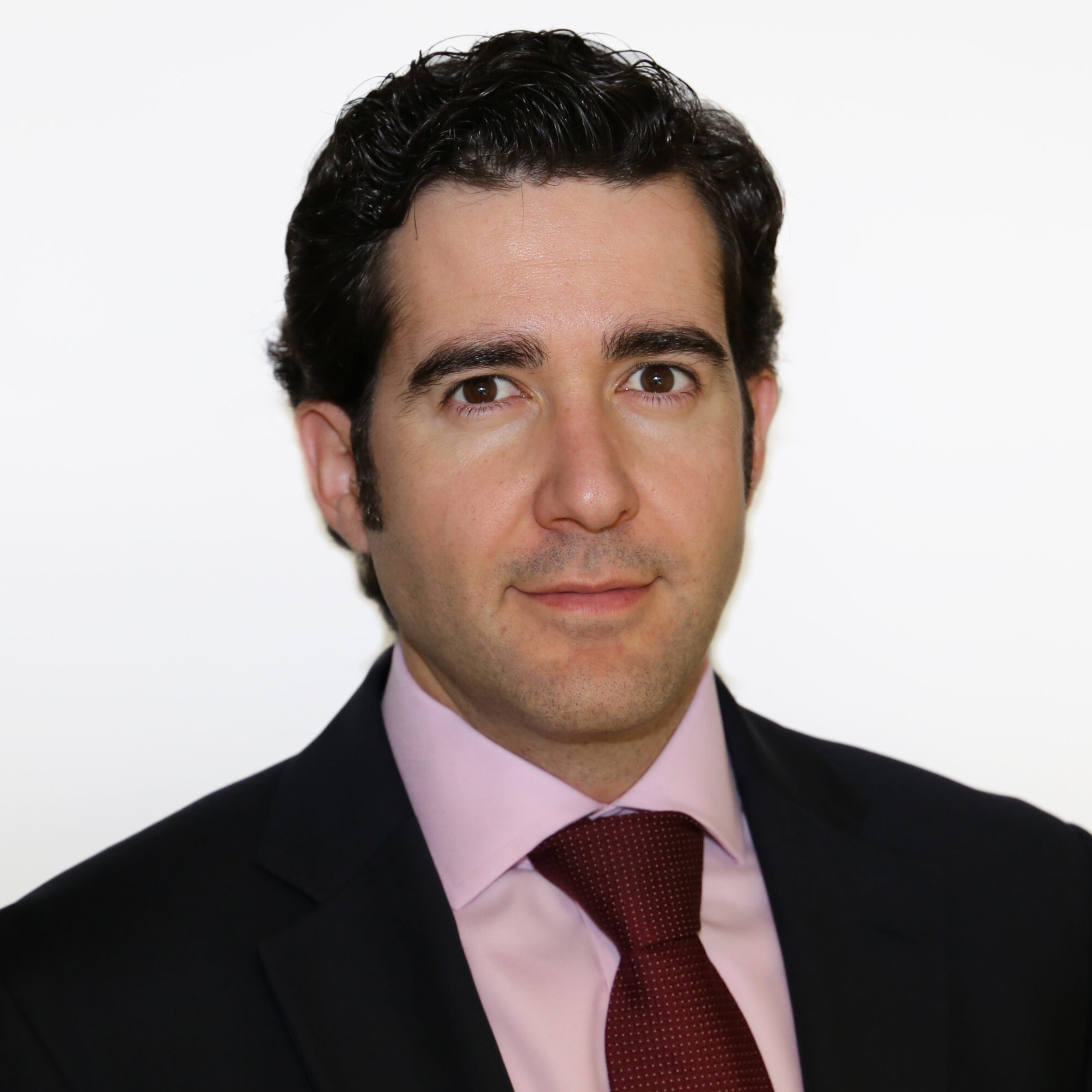
Pedro Gómez is an economist and executive director leading the development of Digital Infrastructure and Data Center business for Ferrovial—a world-known infrastructure developer and operator. Gómez has 20 years working experience in countries such as Spain, the UK, Poland, and Australia where he has undertaken roles from operations management and business development to M&A and corporate restructure.
His areas of expertise vary from infrastructure services and energy efficiency solutions for infrastructure to concessions for public administration.
Along his professional experience, Gómez is a professor at IE University in Madrid where he teaches at the University of Architecture and is also an entrepreneur and start-up investor in the energy sector through a drone-based inspection system.
The focus of his activity today is on the data centers sector, where Ferrovial is one of the European leaders, having Hyperscalers, Colocators, and private and public clients among his clients.
William H. Green
Director, MIT Energy Initiative; Hoyt C. Hottel Professor, MIT Department of Chemical Engineering
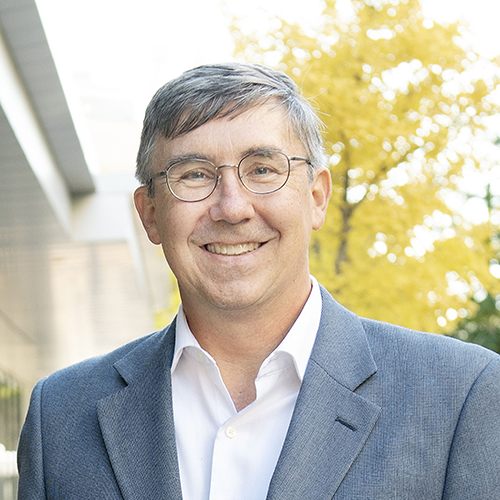
William H. Green, the Hoyt C. Hottel Professor at MIT, is a world leader in chemical kinetics, reaction engineering, prediction of chemical reactions and properties, and in development of related software. He has led many combined experimental/modeling research projects related to fuels, combustion, pyrolysis, and oxidative stability, and he invented an instrument to directly measure rate coefficients for multi-channel reactions. He developed computer methods to predict the behavior of complicated reacting mixtures, many of which are included in the open source Reaction Mechanism Generator software package, a type of AI expert system for reactive chemistry. The associated popular website rmg.mit.edu includes estimators for many chemical properties and several databases. Green co-invented several algorithms and numerical methods helpful for handling complicated chemical kinetics. His group has also developed machine-learning methods and software (ASKCOS and Chemprop) for accurately predicting the products of organic reactions and for predicting many chemical and reaction properties. Chemprop, whose recent versions were developed primarily by Green’s research group, is currently the most popular open-source chemistry software on GitHub. It is heavily used by the pharmaceutical industry, to predict the properties of proposed new drug molecules. Green also invents and analyzes technologies to reduce greenhouse gas emissions, particularly in the transportation/fuel sector. Two of his greenhouse-gas reduction inventions are now being commercialized, one by Thiozen, a company he co-founded. Recently he has been developing and analyzing technology options for decarbonizing the freight sector, with a special interest in long-haul trucking.
Green earned his BA from Swarthmore College, and his PhD in physical chemistry from the University of California at Berkeley under the supervision of C. Bradley Moore. After postdocs at Cambridge University with Nicholas Handy and at the University of Pennsylvania with Marsha Lester, he worked for Exxon Research & Engineering for six years before joining the Chemical Engineering faculty at MIT in 1997. Green has co-authored more than 350 journal articles, which have been cited more than 23,000 times. He is a fellow of the AAAS and of the Combustion Institute, and has received the American Chemical Society’s Glenn Award in Energy & Fuel Chemistry and the AIChE’s Wilhelm Award in Reaction Engineering. He convened and organized the International Conference on Chemical Kinetics in 2011, and now serves as treasurer of that conference series. More than 20 of his former graduate or postdoctoral students are now tenured or tenure-track faculty. He previously served as the editor of the International Journal of Chemical Kinetics, as the faculty chair of MIT’s Mobility of the Future project, and as the executive officer of the MIT Department of Chemical Engineering. He was appointed director of the MIT Energy Initiative in Spring 2024.
Sean James
Senior Director of Datacenter Research, Microsoft
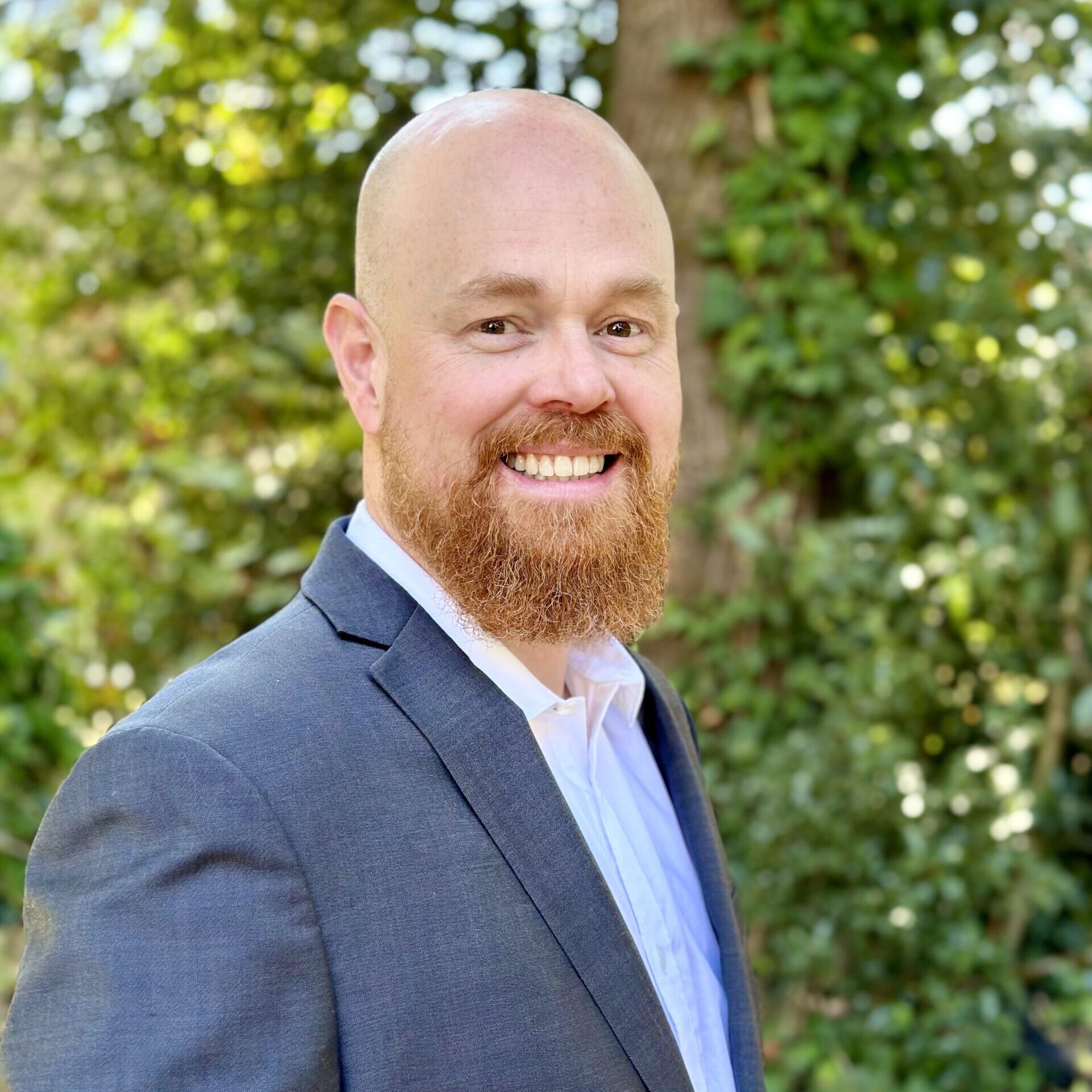
Sean James runs Microsoft’s datacenter research and development program within the Cloud Operations + Innovation (CO+I). CO+I provide the foundational cloud infrastructure for over 1,000,000,000 customers, 20,000,000 businesses, and 200+ Microsoft online services, in 90 markets. James drives new datacenter technology for Microsoft’s next generation data centers including evaluation, development, and testing.
James joined Microsoft in 2006 to manage operations at one of Microsoft’s datacenters. Later, he joined the construction team and oversaw the design and building of new Microsoft datacenters.
Prior to joining Microsoft, James worked in datacenter management overseeing the day-to-day maintenance and repair operations for both IT hardware and critical infrastructure, such as electrical infrastructure and cooling equipment. Prior to joining Microsoft, James served in the U.S. Navy Submarine Fleet as an electrician.
James is a father of three sons, holds many patents related to datacenters and energy, and a degree in information technology.
Cindy Jia
Head of Sustainable Finance, Americas, ING

Cindy Jia heads ING’s Sustainable Finance team for the Americas and is responsible for building upon the team’s industry-leading position in providing tailored advisory and financing solutions in support of clients’ sustainability projects and goals. She is also charged with evolving the team’s mandate to be more closely aligned with ING’s ambition to finance the energy transition and integrating ING’s overall sustainability strategy in the region. Jia is a seasoned industry professional with a career spanning across power project finance, energy technology development, and business strategy. Previously as a director in the team covering the energy and energy-intensive sectors, Jia has led and contributed to a number of landmark transactions across bonds, ABS, and loans. Prior to joining the team, Jia led an energy technology start-up developing heat exchangers and reactors for use in decarbonization solutions and helped the company and its partners win multiple awards from the U.S. Department of Energy (DOE). Jia was also first inventor of a novel heat exchanger that was selected for funding by the Advanced Research Projects Agency – Energy, one the DOE’s most selective programs sponsoring transformational research, alongside the likes of MIT, GE, and Boeing. Jia has a BS in economics from the Wharton School of the University of Pennsylvania and a JD from the St. Francis School of Law. She is admitted to the California Bar.
Prasanna V. Joshi
Vice President of Low Carbon Solutions Technology, ExxonMobil
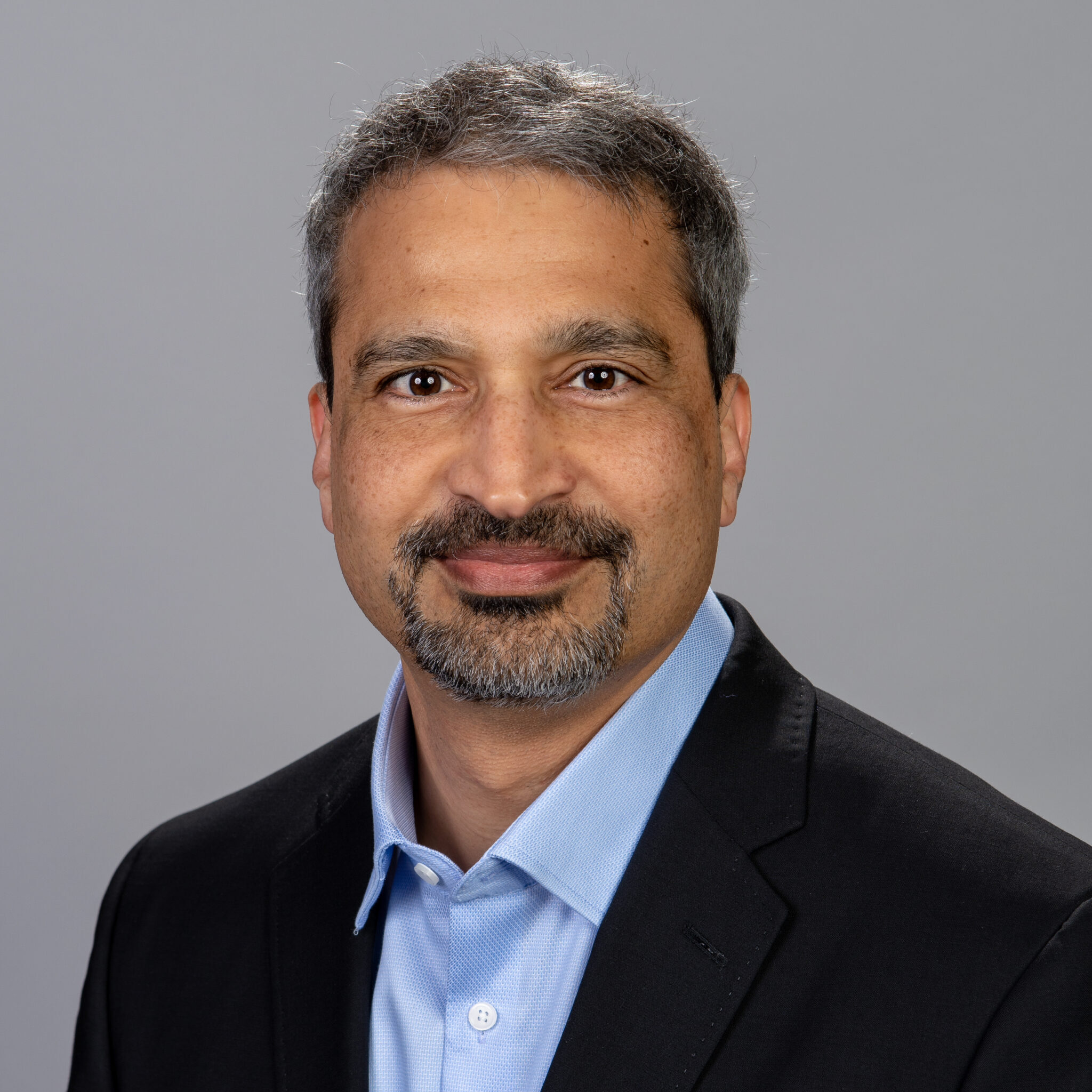
As the vice president for Low Carbon Solutions Technology, Prasanna Joshi leads a team of scientists and engineers focused on technology delivery in carbon capture, carbon storage and transport, hydrogen, low emissions fuels, lithium and carbon offsets. His mission is to deliver the technology solutions that will be critical for ExxonMobil to lead in the energy transition by decarbonizing hard to abate sectors.
Joshi joined the company in 1998 and during the course of his career he has held a variety of leadership roles in process and modeling research, planning for research and engineering, supply and transportation, and global marketing and sales. In 2018, he was named global sales director for the specialty elastomer business and was based in Shanghai, China and in 2020, Joshi became the corporate strategic research director before assuming his current position in April 2022.
Joshi earned his bachelor’s degree in chemical engineering from the University of Mumbai, received an MBA with a major in finance from Tulane University and a PhD at the University of Delaware.
Joshi has served on the advisory board of the United Way of Hunterdon County, the Chemical Reaction Engineering Division of AIChE. the Catalysis Center for Energy Innovation (CCEI) at the University of Delaware and the Singapore Energy Consortium Management Board.
Namrata Kala
Associate Professor, Applied Economics, MIT Sloan School of Management
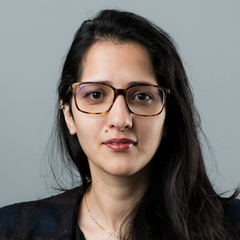
Namrata Kala is an associate professor in Applied Economics at the MIT Sloan School of Management. Her research interests are in environmental, development, and organizational economics. Her current research projects include studying how firms and households adapt to environmental change and regulation, the returns to environmental technologies, and the returns to worker training and incentives. From fall 2015 to 2017, Kala was a prize fellow in Economics, History, and Politics at Harvard University and a postdoctoral fellow at J-PAL. She received her PhD in environmental economics from Yale University in 2015. Kala is the scientific advisor of J-PAL South Asia’s Air and Water Lab, a research associate at the National Bureau of Economic Research (NBER), an affiliate with the Center for Economic and Policy Research (CEPR), a fellow of the Bureau for Research and Economic Analysis of Development (BREAD), and joint managing director of Economic Journal.
Kyung-Shik Kim
Postdoctoral Associate, MIT Department of Materials Science and Engineering

Kyung-Shik Kim is a postdoctoral associate in the Tasan group at MIT Department of Materials Science and Engineering. His research focuses on understanding hydrogen behavior in metals and finding solutions for hydrogen induced embrittlement. Kim received his bachelor’s degree in materials science and engineering from Korea University and his PhD in ferrous and energy materials technology from POSTECH. Before joining MIT, he served as a senior research engineer at Samsung Display company.
Janelle Knox-Hayes
Professor of Economic Geography and Planning, MIT Department of Urban Studies and Planning

Janelle Knox-Hayes is a professor of Economic Geography and Planning in the MIT Department of Urban Studies and Planning and the director of the Resilient Communities Lab. Her research focuses on the governance of climate mitigation and adaptation and systems to build socio-economic, cultural, and environmental resilience for communities. Her latest projects examine how community engagement and the integration of Traditional Ecological Knowledge can strengthen climate assessments and planning, the effects of compound climate risks on vulnerable and frontline populations within urban canters, and on developing frameworks and toolkits for community based co-design of renewable energy systems. She is particularly interested in understanding how values shape planning and decision making across a variety of scales. Her publications include multiple peer reviewed articles and books including Saving for Retirement, The Culture of Markets: The Political Economy of Climate Governance, and the Routledge Handbook of Financial Geography.
Sally Kornbluth
President, Massachusetts Institute of Technology
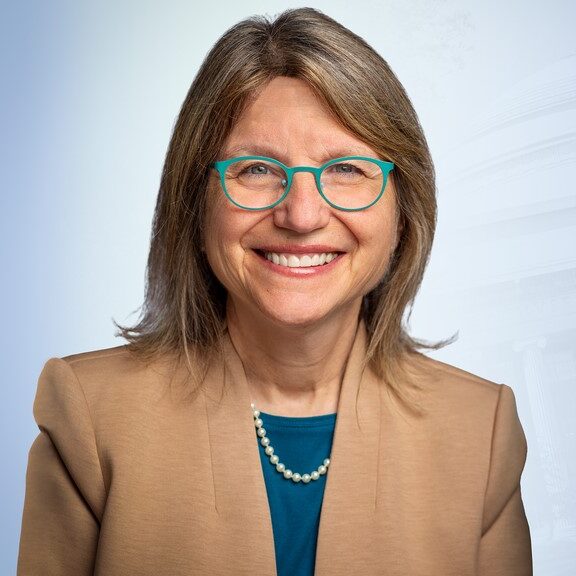
Sally Kornbluth has served as MIT’s 18th president since January 2023. Since her arrival, she has galvanized the community to help solve the interlocking crises of global warming with the Climate Project at MIT and intensified MIT’s efforts to help make sure that AI is broadly beneficial for society. Currently – to help make sure that Kendall Square is also home to the next biotech revolution – she is launching an initiative to forge new links between the life sciences and engineering, to spur new solutions in human health. During a challenging year of unrest on campuses across the country, she has championed the Institute’s commitment to freedom of expression, while making sure that everyone at MIT remains free to do the work they came here to do – and that the great work of MIT continues. She also launched a new podcast series, “Curiosity Unbounded,” to showcase the work rising young MIT faculty. A native of Fair Lawn, New Jersey, Kornbluth graduated from Williams College in 1982 with a BA in political science. Making a sharp pivot toward biology, she received a scholarship to attend Cambridge University, where she earned a BA in genetics in 1984. In 1989, Kornbluth received her PhD in molecular oncology from Rockefeller University, and then completed postdoctoral training at the University of California, San Diego. In 1994, she joined Duke University as an assistant professor of pharmacology and cancer biology. Focusing her research on the biological signals that tell a cell to start dividing or to self-destruct — processes that are key to understanding cancer as well as various degenerative disorders – by 2005 she had risen to full professor. The following year, she stepped into administration as vice dean for basic science at the Duke School of Medicine. In 2014 she became Duke’s provost, a role she held until coming to MIT. Among other honors, in 2012, Kornbluth received the Basic Science Research Mentoring Award from the Duke School of Medicine and in 2013, the Distinguished Faculty Award from the Duke Medical Alumni Association. She is a member of the National Academy of Medicine, the National Academy of Inventors, and the American Academy of Arts and Sciences. She lives on campus with her husband, Daniel Lew, a professor in MIT’s Department of Biology. They have two grown children.
J.J. Laukaitis
Director of Member Services, MIT Energy Initiative

J.J. Laukaitis is the director of Member Services at the MIT Energy Initiative, where he manages the growth of impactful collaborations between leading corporations and MIT faculty, researchers, and innovators.
Laukaitis has over 25 years of experience in engineering, product management, and large account sales management across multiple industries including mechanical design, software, electronics, and semiconductor manufacturing equipment.
During his industry career Laukaitis has led new revenue growth and business development initiatives at large established corporations and was a key contributor to early revenue generation and the IPO at PTC.
At MIT, Laukaitis has a track record of initiating and growing large, strategic engagements between industry partners and MIT, resulting in mutually beneficial research projects and technology commercialization initiatives. For 11 years, Laukaitis has worked closely with some of the largest and boldest initiatives across MIT, such as the MIT Energy Initiative, Abdul Latif Jameel World Water and Food Systems Lab, and Advanced Manufacturing Initiatives.
Laukaitis received a bachelor’s degree in mechanical engineering from Lehigh University and a masters in science from the MIT Sloan School of Management. Laukaitis is a graduate of Leader 2 Leader (L2L), MIT’s nationally-recognized development program for MIT leaders.
Trent Lee
Undergraduate Researcher, Deng Energy and Nanotechnology Group, Lienhard Research Group; Undergraduate Student, MIT Department of Mechanical Engineering

Trent Lee is an undergraduate junior at MIT, studying mechanical engineering with a concentration in sustainable development. He is interested in energy storage, sustainable design, and resource recovery.
In 2023, Lee joined the Lienhard Research Group to investigate membrane processes for lithium extraction from hypersaline brines and spent batteries. He also led research on a membrane system to upcycle aluminum from the waste stream of primary aluminum production. Lee was awarded the Peter Griffith Prize for best undergraduate experimental project in MIT’s Department of Mechanical Engineering.
He recently joined the Deng Energy and Nanotechnology Group to explore the efficacy of flame-assisted spray pyrolysis to synthesize solid-state batteries. Lee is also an Energy Studies Minor and a Division I varsity athlete on the MIT Men’s Lightweight Crew team.
Zoe Lipman
Lead, Good Jobs & Labor Standards, Office of Energy Jobs, U.S. Department of Energy
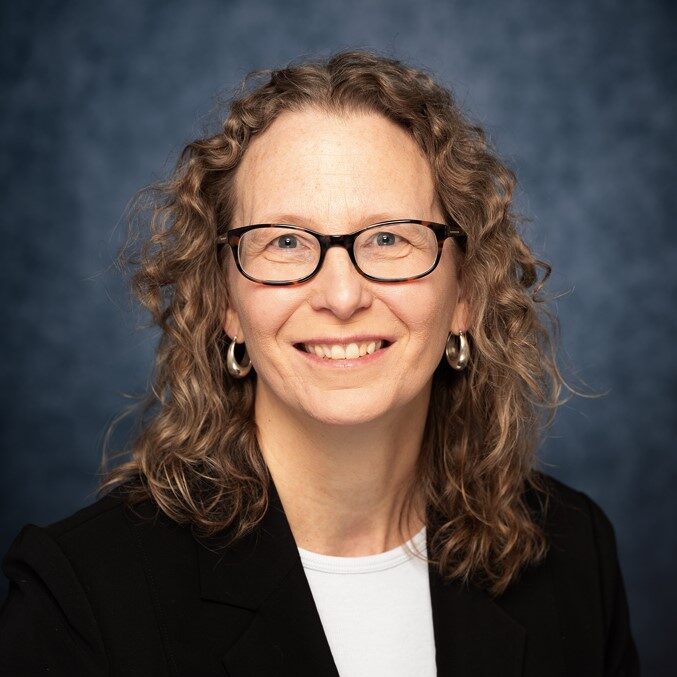
Zoe Lipman is lead for Good Jobs and Labor Standards in the Office of Energy Jobs at the U.S. Department of Energy.
Lipman comes to DOE from the AFL-CIO where she was deputy director of the Industrial Union Council and worked with the federation’s staff and union affiliates to promote and expand domestic manufacturing and good jobs across energy supply chains. Lipman was previously the director of Manufacturing and Advanced Transportation at the BlueGreen Alliance where she led policy and advocacy on clean technology manufacturing, advanced and electric vehicles, and related economic topics.
Earlier in her career, she led the National Wildlife Federation’s clean vehicles program and created and ran its Midwest climate policy program. She also worked on staff for labor unions in the U.S. and overseas.
Bill Lowry
Vice President, Innovation and Strategic Development, Exelon

Bill Lowry is the vice president of Innovation & Strategic Development for Exelon, leading the Innovation function for Exelon’s 19,000+ employees and developing multi-OpCo strategies for digital communications and data centers. Prior to joining Exelon, Lowry held executive positions with data center development, managed services, and technology firms including Terremark, ServerCentral, and Apple.
Ruaridh Macdonald
Research Scientist, MIT Energy Initiative

Ruaridh Macdonald is the energy systems research lead at the MIT Energy Initiative. His research explores how best to decarbonize the electricity grid and other sectors, and which technologies and policies will reduce the cost of the energy transition while also ensuring grid resilience and security. He is developing novel approaches to macro-energy system modelling which allow for larger multi-sector energy systems to be optimized over long time periods. This allows for technologies to be modelled with greater fidelity and considering interannual variation in energy supply and demand. Ruaridh is a co-lead developer of the GenX and DOLPHYN macro-energy system models. He completed his PhD in Nuclear Science and Engineering at MIT.
Roman Madaus
Business Development Lead, Osmoses

Roman Madaus leads business development at Osmoses, a climatetech startup focused on industrial decarbonization through ultra-high-efficiency gas separations. He translates technology performance data into the “so what” for customers, investors, and government agencies. Prior to Osmoses, Madaus worked in management consulting for six years focusing on operations optimization and cleantech innovation strategy. He holds a project management professional (PMP) certification, is fluent in German, and has a background in international relations. In his free time, Madaus enjoys kiteboarding, rock climbing, and permaculture gardening.
Catarina Madeira
Director, MIT Startup Exchange
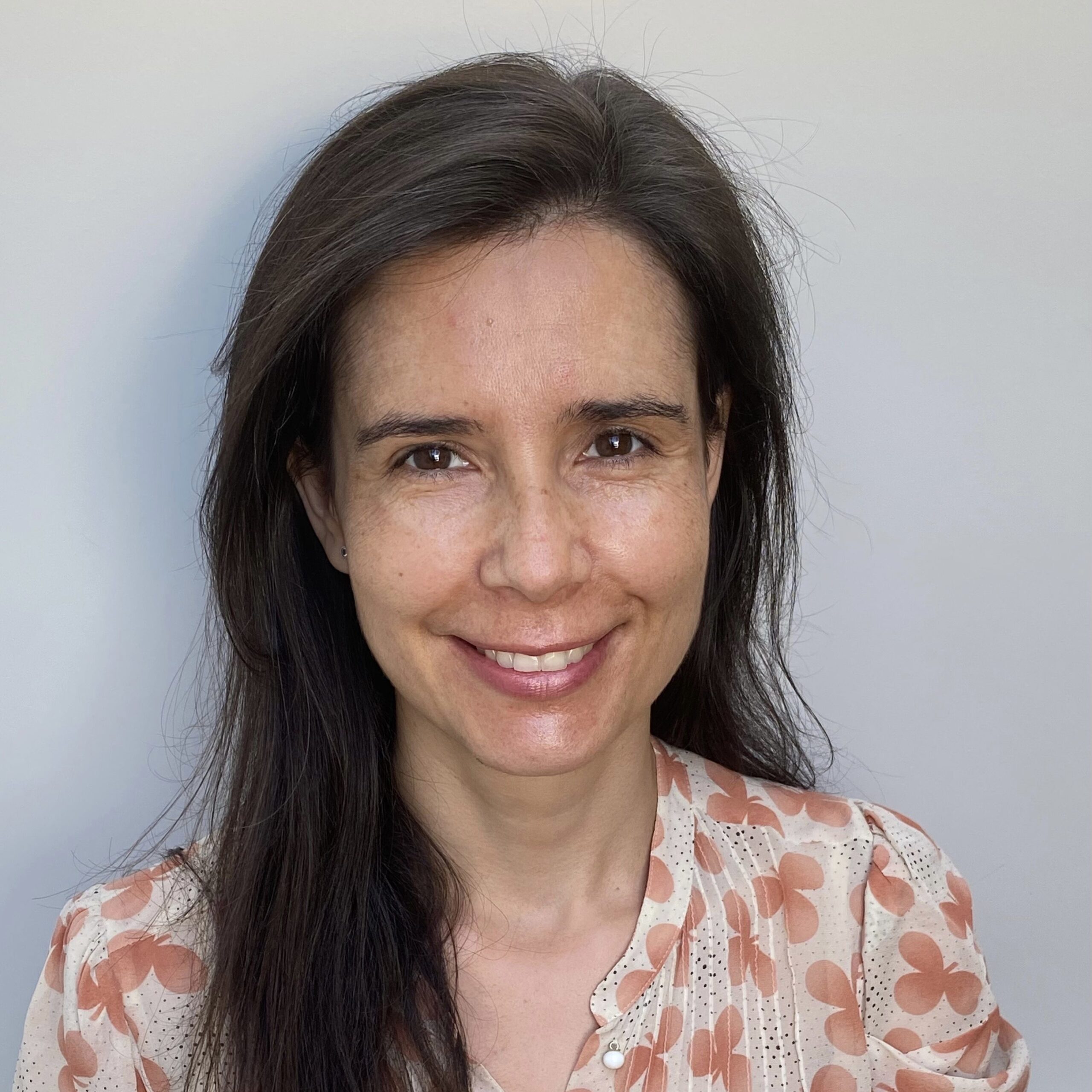
Catarina Madeira has been working with the Cambridge/Boston startup ecosystem for over 15 years and joined MIT Corporate Relations with a solid network in the innovation and entrepreneurial community. Prior to MIT, she was part of the team that designed and launched the startup accelerator IUL MIT Portugal later rebranded to Building Global Innovators. She was based in Lisbon and worked in direct relation with the Cambridge team. She held positions including operations coordinator, program manager, and business developer. The accelerator soon achieved steady growth in large part due to the partnerships that Madeira led with regional and global startup ecosystems. After that, she worked at NECEC/ACT, leading a program that connects cleantech startups and industry.
Madeira earned her bachelor’s in chemistry at the University of Porto and her bachelor’s in pharmaceutical sciences at the University of Coimbra in Portugal. She went on to earn her Master of Engineering for Health and Medicines at University Lyon 1 in France.
David S. Miller
Managing Partner, Clean Energy Ventures
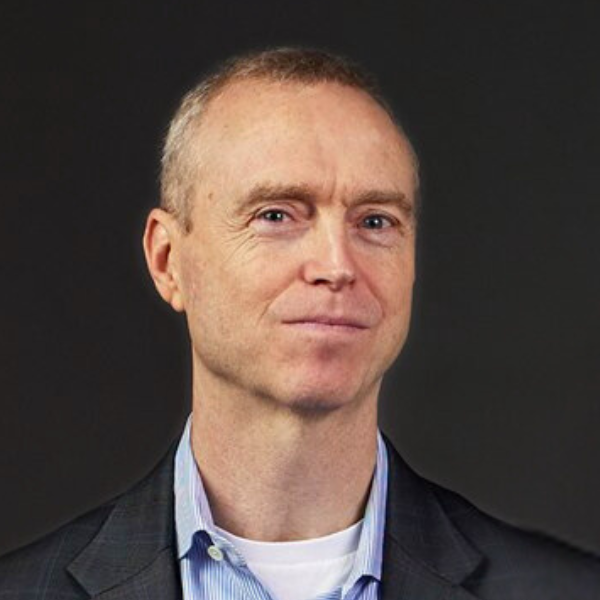
A sought-after investor and advisor for companies at the intersection of technology and climate impact, David Miller brings over 25 years of technology startup management experience and over 20 years of early stage investing experience to Clean Energy Ventures as a founding partner. Previously, Miller was the founder and executive managing director of the Clean Energy Venture Group. Prior to that, he was a director in the New Ventures Group at Lucent Technologies, and founder and CEO of Quantum Telecom Solutions. Miller has been on the board of directors of several clean energy companies, including CEV portfolio companies Boston Materials, Pearl Certification, Volexion, Noon Energy, prior portfolio companies Pika Energy, and MyEnergy, and has advised and mentored many others. He is an advisory board member of the MIT Sloan Sustainability Initiative, where he also has an appointment as research affiliate, and previously taught electrical engineering at Rutgers University. He completed his doctorate at MIT where he developed the model underpinning the CleanStart clean energy startup simulator, and runs workshops utilizing CleanStart as well as the En-ROADS climate change solutions simulator. He developed the methodology behind CEV’s Simple Emissions Reduction Calculator (SERC) in order to most quickly and effectively screen which startup companies have the most potential to reduce GHG emissions at scale and supports industry efforts to standardize emission reduction assessments.
Ernest J. Moniz
Professor of Physics & Special Advisor to the President, MIT
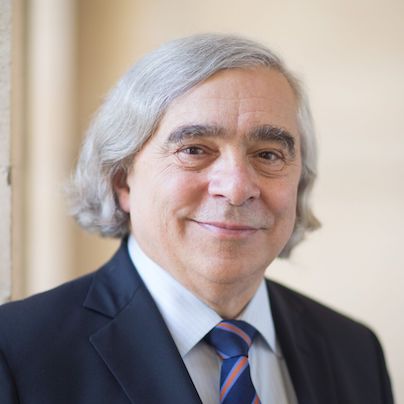
Ernest J. Moniz was the thirteenth US Secretary of Energy, advancing clean energy technology innovation, nuclear security, and cutting-edge scientific research capabilities. He negotiated the Iran nuclear agreement alongside the Secretary of State.
Moniz joined the Massachusetts Institute of Technology faculty in 1973, was founding director of the MIT Energy Initiative and is the Cecil and Ida Green Professor of Physics and Engineering Systems emeritus. He is CEO of the Nuclear Threat Initiative and of the Energy Futures Initiative and received the inaugural American Academy of Arts and Sciences Award for Excellence in Public Policy and Public Affairs.
Aisling O’Grady
Education Program Administrator, MIT Energy Initiative
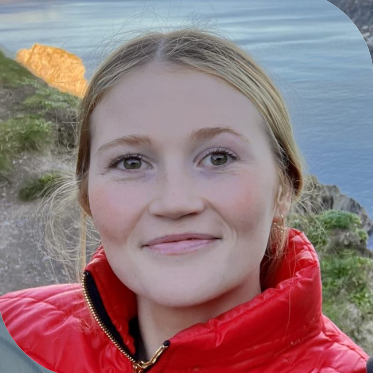
Aisling O’Grady is the Education Program Administrator for MITEI, maintaining her position as part of the Education team, and driving MITEI’s Summer Energy UROP Professional Development Program. Her particular focus here is on science communication, including connecting the energy research from undergraduates to the CATE program.
She also manages the Climate Action Through Education (MIT CATE) Program through the Center for Energy and Environmental Policy Research (CEEPR). She drives the development of interdisciplinary climate curriculum at the high school level, various climate professional development endeavors, outreach, fundraising, and all associated logistics — alongside a team of local high school teachers and Faculty Director Professor Christopher R. Knittel. She joined CATE in 2020, having previously worked as a member of the MIT Energy Initiative (MITEI)’s Education team. There, beginning in 2017, she coordinated undergraduate energy programming, conducted research on the climate and conflict nexus, and coordinated the Design Thinking Zero Carbon Islands Project.
O’Grady holds a BA in international affairs and environmental studies from Northeastern University, and an AS from Middlesex Community College.
Elsa A. Olivetti
Jerry McAfee (1940) Professor in Engineering, MIT Department of Materials Science and Engineering
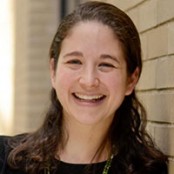
Elsa Olivetti received a BS in engineering science from the University of Virginia in 2000, and a PhD in materials science and engineering from MIT in 2007. She spent her PhD program studying the electrochemistry of polymer and inorganic materials for electrodes in lithium-ion batteries. In 2014, she became faculty in the MIT Department of Materials Science and Engineering. She directs the MIT Climate Project’s Decarbonizing Energy and Industry Mission and is the strategic advisor for the MIT Climate & Sustainability Consortium.
Olivetti’s research focuses on improving the environmental and economic sustainability of materials. Specifically, she develops analytical and computational models to provide early-stage information on the cost and environmental impact of materials. Olivetti and her research-group colleagues work toward improving sustainability through increased use of recycled and renewable materials, recycling-friendly material design, and intelligent waste disposition. The group also focuses on understanding the implications of substitution, dematerialization, and waste mining on materials markets.
John Parsons
Deputy Director for Research, MIT Center for Energy and Environmental Policy Research
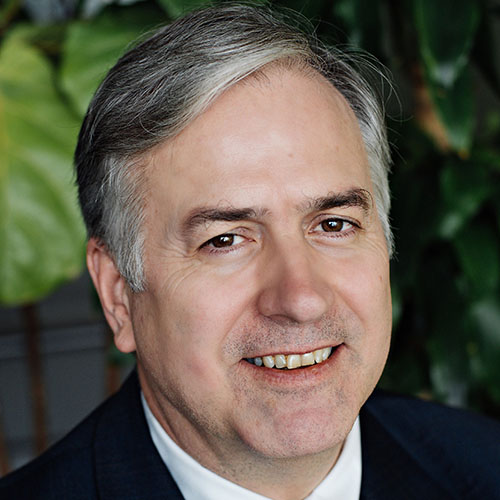
John Parsons is the deputy director for research of the MIT Center for Energy and Environmental Policy Research (CEEPR). His research focuses on the valuation and financing of investments in energy markets and the path to decarbonization, as well as the problems of risk in energy and environment markets. Recent publications have touched on interregional transmission investments, including the interaction with hydro assets and expanded penetration of renewables, the value of investments in life extensions of nuclear power plants, and the economics of new microreactors. He is currently working on the design of market rules for electricity storage.
Parsons has served as an associate member of the U.S. Commodity Futures Trading Commission’s Energy and Environmental Markets Advisory Committee and has been a visiting scholar at the Federal Energy Regulatory Commission.
Aruna Ramkrishnan
Co-founder and CTO, Copernic Catalysts
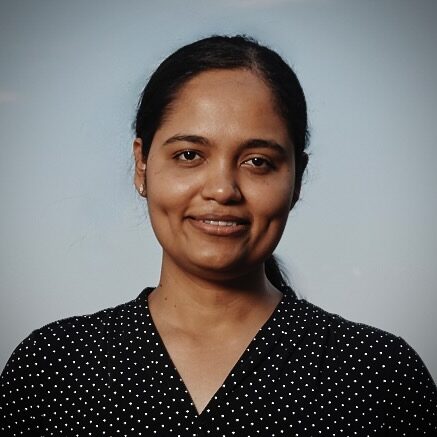
Aruna Ramkrishnan has over a decade of experience in chemical engineering R&D and strategy and has held technical leadership positions at Linde and ExxonMobil. She has expertise in the development of emissions mitigation technologies like biofuels, hydrogen, and carbon capture, and has authored 15 patents in the fields of sustainable materials and processes. She holds a BTech in chemical engineering from IIT, Bombay and a PhD in Chemical engineering from the University of Minnesota.
Elisabeth B. Reynolds
Professor of the Practice, MIT Department of Urban Studies and Planning
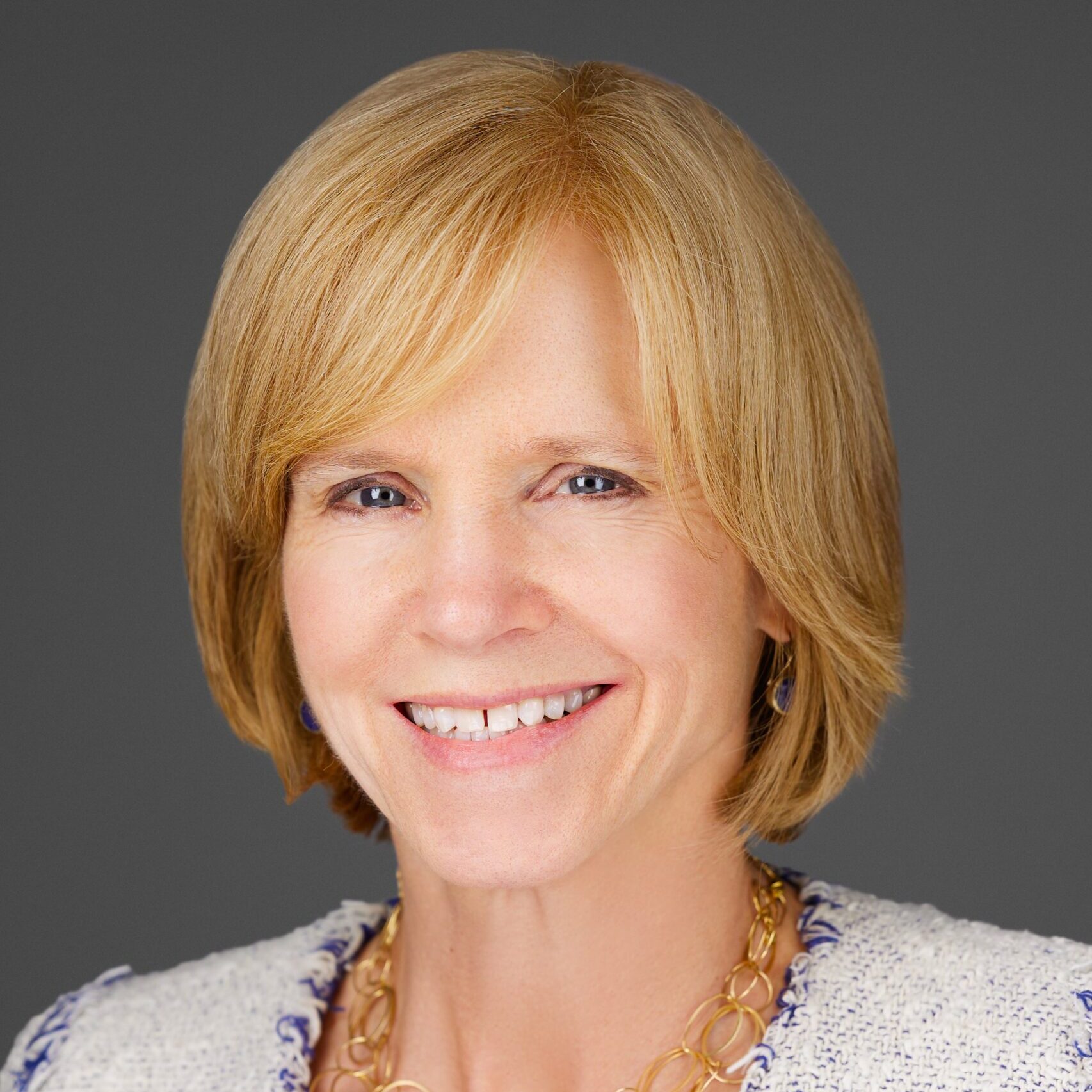
Elisabeth Reynolds is Professor of the Practice in the MIT Department of Urban Studies and Planning at MIT. She was special assistant to President Biden for Manufacturing and Economic Development at the National Economic Council (NEC, 2021-2022) where she helped lead the Administration’s work on national manufacturing strategy, supply chain resilience and industrial strategy. Before working at the NEC, Reynolds was a principal research scientist and executive director of the MIT Industrial Performance Center (2010-2021), an interdisciplinary research center focused on systems of innovation and industrial transformation. She also co-led the MIT Task Force on the Work of the Future (2018-2021), which examined the relationship between emerging technologies and work. Reynolds’ work and research focus on systems of innovation and manufacturing including growing innovative firms to scale and digital technology adoption.
Reynolds has worked on rebuilding manufacturing capabilities in the U.S. in a number of capacities including advising three Massachusetts governors. She represents MIT on the board of the non-profit, Advanced Functional Fabrics of America (AFFOA) and is also an advisor to the Special Competitive Studies Project, a Washington think tank focused on national security and critical technologies.
Nicholas Ryan
Associate Professor of Economics, Yale University

Nicholas Ryan is an energy economist who studies energy markets and environmental regulation in developing countries. Energy use enables high standards of living but rapid, energy-intensive growth has caused many environmental problems in turn. Ryan’s research measures how energy use and pollution emissions respond to regulation and market incentives. His work includes empirical studies of electricity markets, carbon markets, and environmental regulation. Recent research studies the adoption and pricing of renewable energy in developing countries.
Ryan is an associate professor of Economics at Yale University. His research has been supported by grants from the National Science Foundation and US AID. He was a Prize Fellow in Economics at Harvard University. He received a PhD in economics from the Massachusetts Institute of Technology and a BA in economics summa cum laude from the University of Pennsylvania. He previously worked as a research associate in the Capital Markets group at the Federal Reserve Board of Governors in Washington, DC.
Jinyoung Seo
Co-founder and CTO, Pascal

Jinyoung Seo is the co-founder and CTO of Pascal, an early-stage startup commercializing solid refrigerant technologies that unlock higher efficiency air-conditioning and heat pump systems. Prior to founding Pascal in 2023, Seo led the foundational research on solid refrigerants at Harvard University, where he earned his PhD in chemistry. He is driven by his commitment to combat climate change through innovations at the intersection of chemical sciences and engineering. He holds a BS in chemistry from Seoul National University in Korea.
Afreen Siddiqi
Research Scientist, MIT Department of Aeronautics and Astronautics
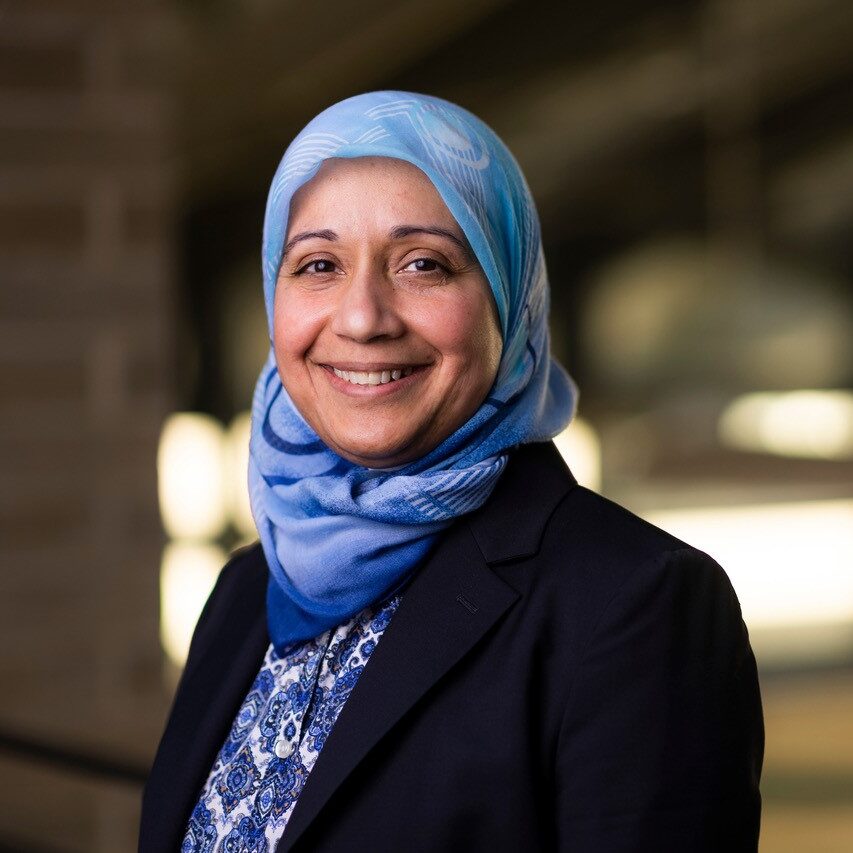
Afreen Siddiqi is a research scientist in the Department of Aeronautics and Astronautics at the Massachusetts Institute of Technology (MIT). She has an SB in mechanical engineering, an SM in aeronautics and astronautics, and a PhD in aerospace systems, all from MIT. Her research interests are at the intersection of engineering, analytics, and policy. She builds mathematical models and devises new methods for analyzing complex, dynamic systems operating in changing environments. Her work, motivated by challenges of sustainability for human well-being, includes modeling of interactions between water, energy, and agriculture systems, satellite remote sensing for decisions, and new applications of portfolio theory for technology and infrastructure investments. She has co-authored a book and over 120 technical and scientific publications. She has also served as a contributing author to the sixth assessment report of 2022 (working group II, chapter 4) of the Intergovernmental Panel on Climate Change (IPCC) on implications of water, energy, and food interconnections for climate change adaptation, and has contributed research for the United Nations Committee of Experts on Public Administration (UN-CEPA) on Climate Change Action and Sustainability of Natural Resources.
Praveer Sinha
CEO and Managing Director, The Tata Power Company Limited
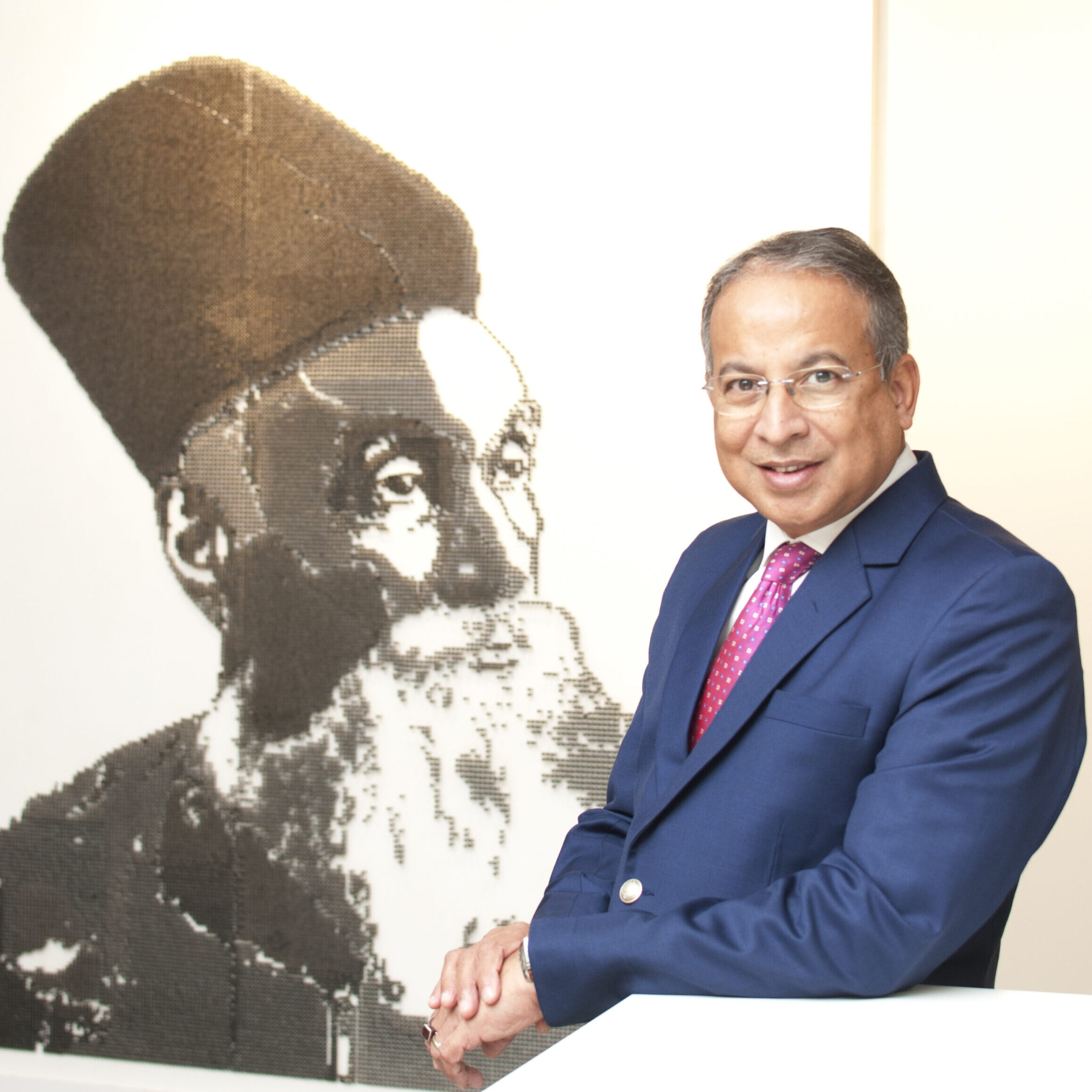
Praveer Sinha is the CEO and managing director of The Tata Power Company Limited—one of India’s oldest and largest integrated power utilities. A seasoned power professional, with an illustrious career spanning nearly four decades, Sinha has held pivotal leadership roles across the power sector value chain. Having led the expansion of both brownfield and greenfield thermal power plants in India and successfully turning around the operations of power distribution companies, he is now actively contributing to the advancement of the energy transition agenda. Under his current leadership, Tata Power is undergoing a profound transformation, transitioning from a century old power utility into a new-aged sustainable, technology oriented and customer centric green energy solutions company. A strong advocate of ‘Sustainable Is Attainable’, he is championing sustainability initiatives from the forefront; successfully incubating several new-age energy solutions businesses. Sinha is passionate about technology and has led collaborations with technology partners both nationally and internationally. He played a significant role in setting up the first international incubator in India for promoting innovations in the clean energy space. In 2023, he received accolades for Best CEO-Power Sector from Business Today and Fortune India for his contribution in building a greener and future-ready India. Sinha is a qualified electrical engineer and has done his master’s in business law. He received his PhD from Indian Institute of Technology, Delhi and completed his Advanced Management Programme from IIM Ahmedabad. He is a sports enthusiast and loves playing badminton and golf.
Larry Susskind
Ford Professor of Urban and Environmental Planning, MIT Department of Urban Studies and Planning; Co-founder and Vice-Chair, Program on Negotiation, Harvard Law School

Larry Susskind has been a member of the teaching faculty in the Department of Urban Studies and Planning at MIT for more than 50 years. He teaches a range of courses on environmental policy and planning, cybersecurity for critical urban infrastructure, sovereignty of indigenous communities, social entrepreneurship, water diplomacy, and local climate adaptation. He co-founded and serves as vice-chair of the inter-university Program on Negotiation at Harvard Law School. He also founded and serves as chief knowledge officer of the not-for-profit Consensus Building Institute through which he has provided mediation services in complex resource management disputes in more than 10 countries and 20 states. He is the author of more than 20 books published in eight languages and has supervised 70 doctoral dissertations at MIT and Harvard. He is currently designing a new MIT Clinic on Renewable Energy Facility Siting that will provide a neutral setting for joint fact finding and collaborative problem-solving for parties in facility siting disputes.
Yogesh Surendranath
Donner Professor of Science, MIT Departments of Chemistry and Chemical Engineering
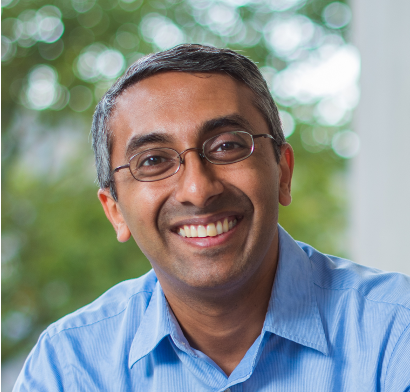
Yogesh (Yogi) Surendranath is the Donner Professor of Science with appointments in the Departments of Chemistry & Chemical Engineering at the Massachusetts Institute of Technology. He holds dual bachelor’s degrees in chemistry and physics from the University of Virginia and a PhD in inorganic chemistry from MIT, obtained under the direction of Professor Daniel Nocera. After receiving his PhD, Surendranath undertook postdoctoral studies as a Miller Research Fellow at UC Berkeley, under the direction of Professor Paul Alivisatos. In 2013, he launched his independent research program at MIT. The Surendranath group aims to address frontier challenges in energy conversion and sustainability by controlling interfacial reactivity at the molecular level.
Richard Swartwout
Co-founder and CTO, Active Surfaces
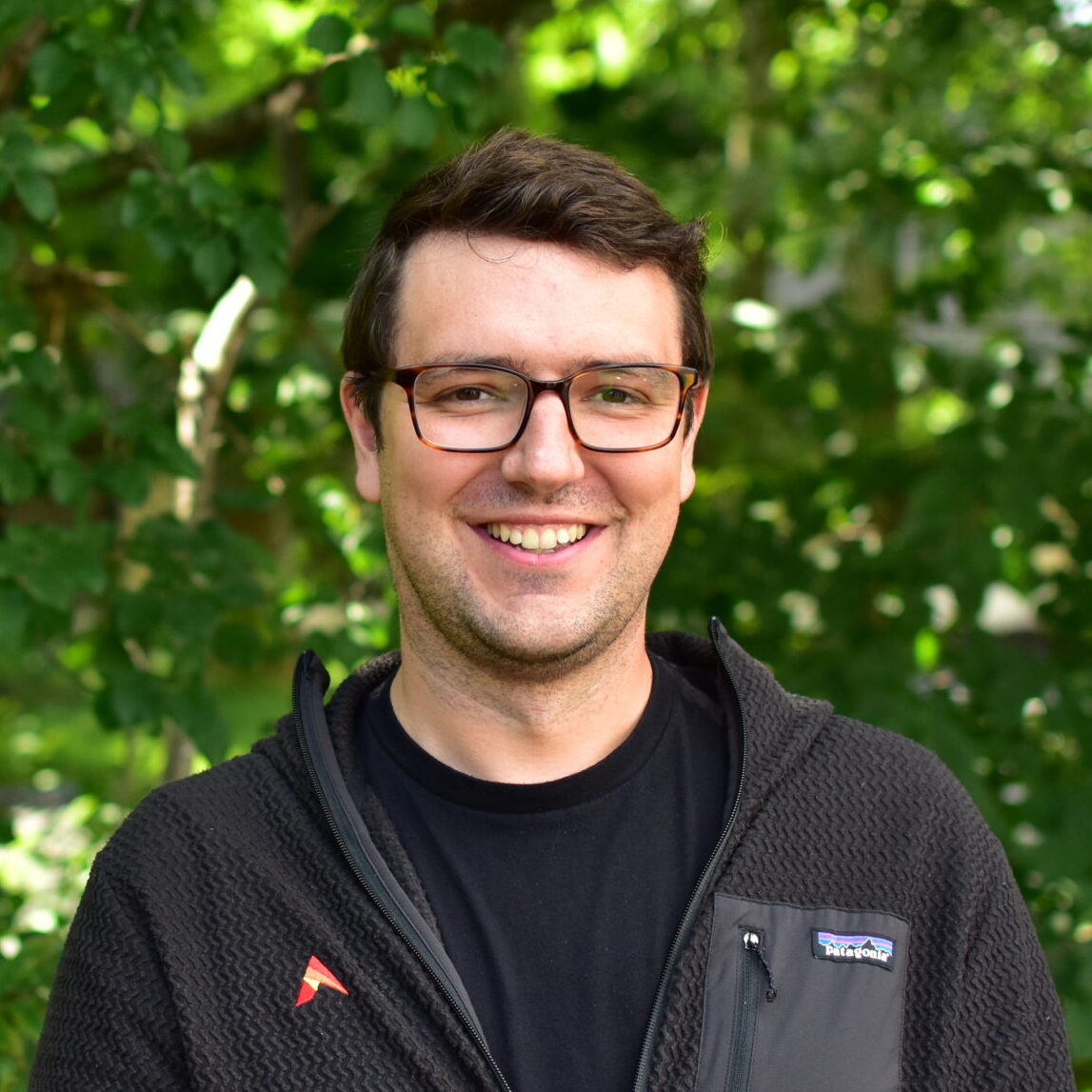
Richard Swartwout, co-founder and CTO, is an MIT PhD in solar R&D and printed electronics and brings over a decade of experience in energy innovation to Active Surfaces. As a Tata Center Fellow, Swartwout recognized the potential of flexible solar panels in powering remote areas, which led him to co-develop MIT’s GridEdge program. Swartwout brings his deep technical expertise to Active Surfaces, leading Active Surface’s technical development.
Devon Swezey
Senior Manager for Global Energy and Climate, Google
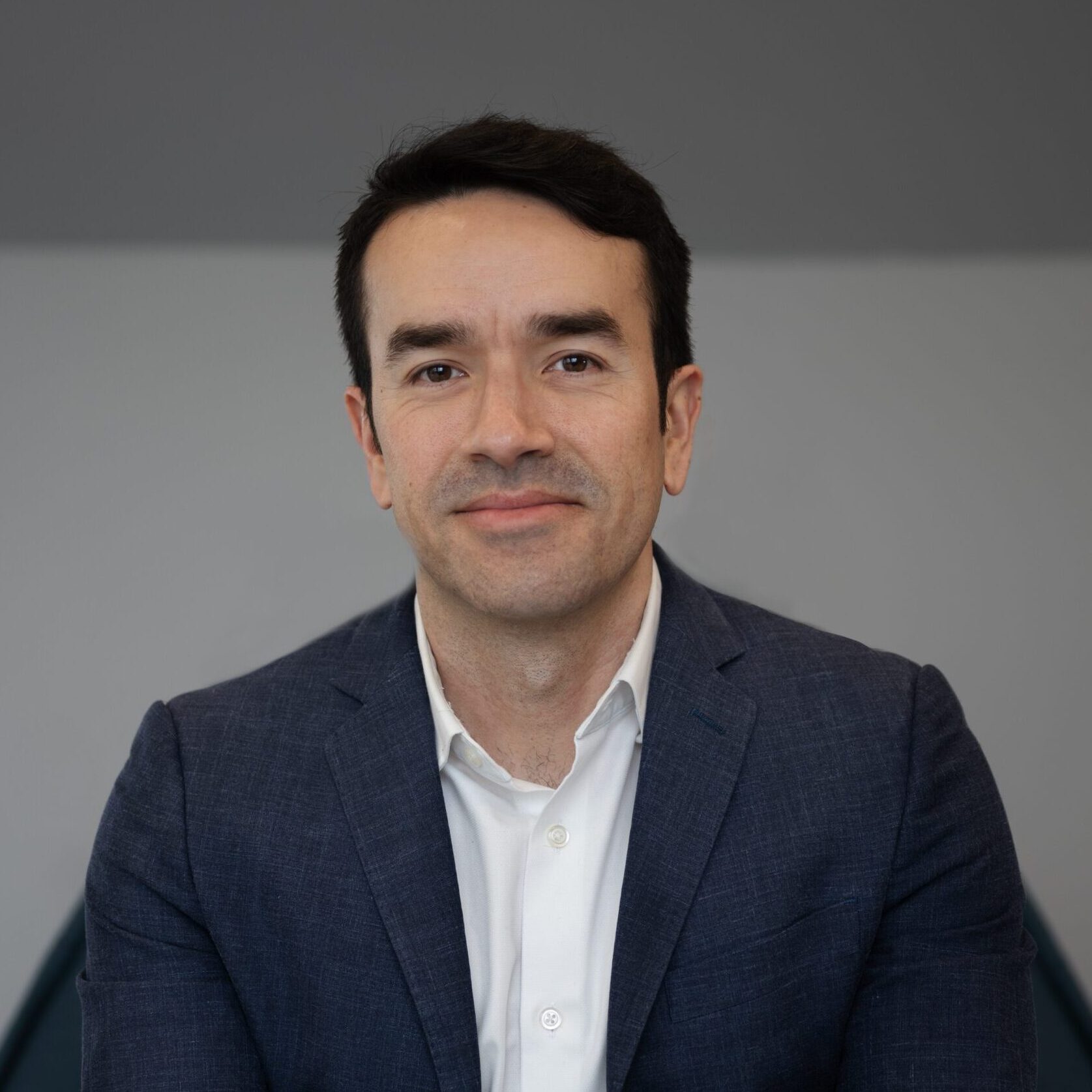
Devon Swezey is senior manager for Global Energy and Climate at Google, where he leads global clean energy advocacy. He was lead author of Google’s recently published Policy Roadmap for 24/7 Carbon-free Energy and paper on the Corporate Role in Accelerating Advanced Clean Electricity Technologies. Prior to joining Google, Swezey developed utility scale solar PV projects at First Solar. Swezey began his career at the Breakthrough Institute, a climate and energy policy think tank, where he led research on economic and energy policy topics. Swezey earned his Master’s degree in international economics from Johns Hopkins School of Advanced International Studies (SAIS) and a Bachelor’s degree in international relations from Stanford University.
Elizabeth Thom
PhD Candidate, Harvard University
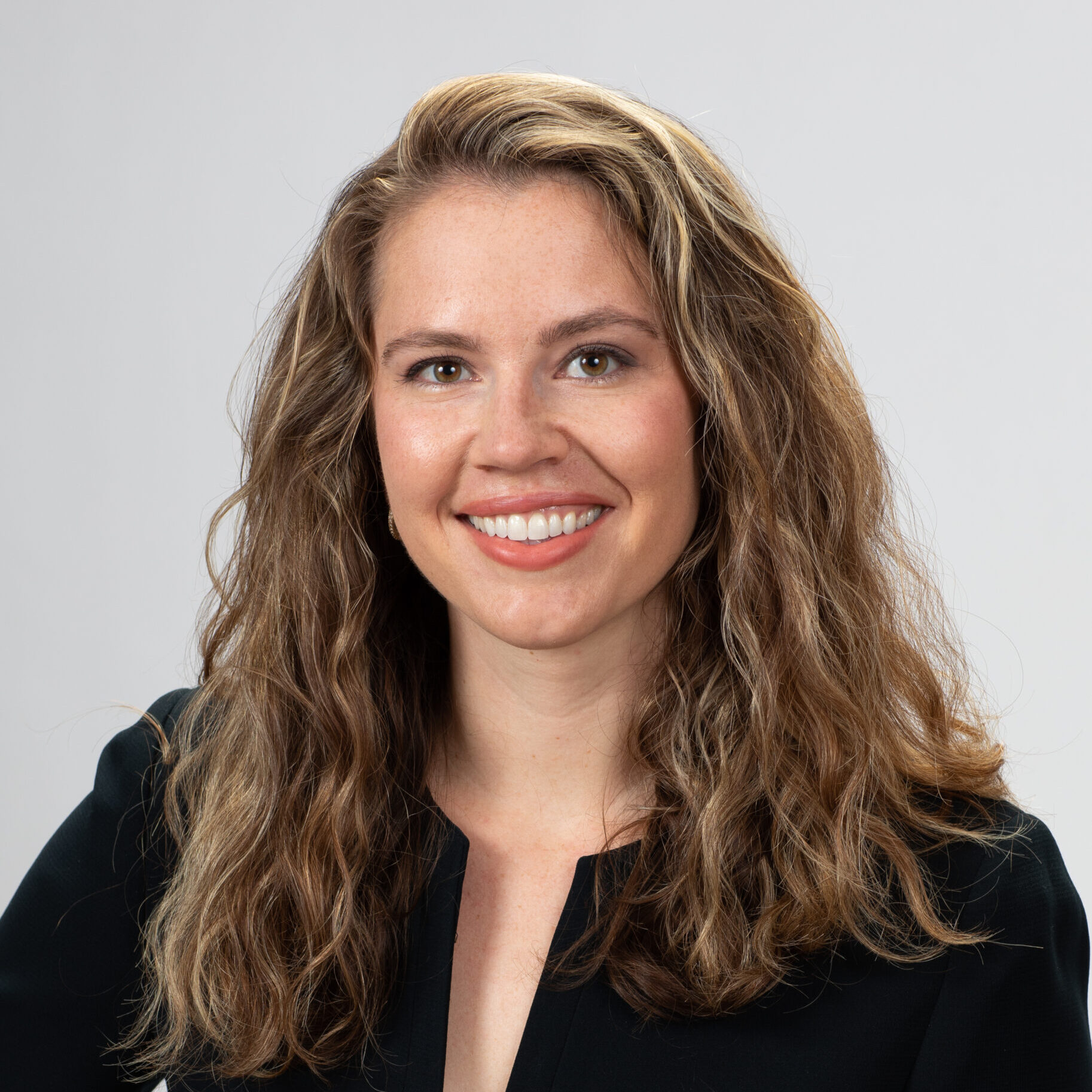
Elizabeth Thom is a PhD candidate in government & social policy and a Malcolm Wiener Scholar in Poverty and Justice at Harvard University. She studies social policy, inequality, and the political economy of the energy transition in the United States. Her dissertation project examines the politics of the American welfare state in regions of the country dominated by single industries. Most of her research and fieldwork focuses on communities in Central Appalachia. In addition to her dissertation, Thom is a researcher with the Roosevelt Project, a multi-year collaboration across several universities, including MIT, Harvard, and Carnegie Mellon, focused on regional strategies for deep decarbonization. Prior to her doctoral studies, Thom was a senior project coordinator and research assistant at the Brookings Institution. She graduated summa cum laude and Phi Beta Kappa from the University of Pennsylvania with a BA in political science and Hispanic studies. She earned her MSc in comparative social policy from the University of Oxford.